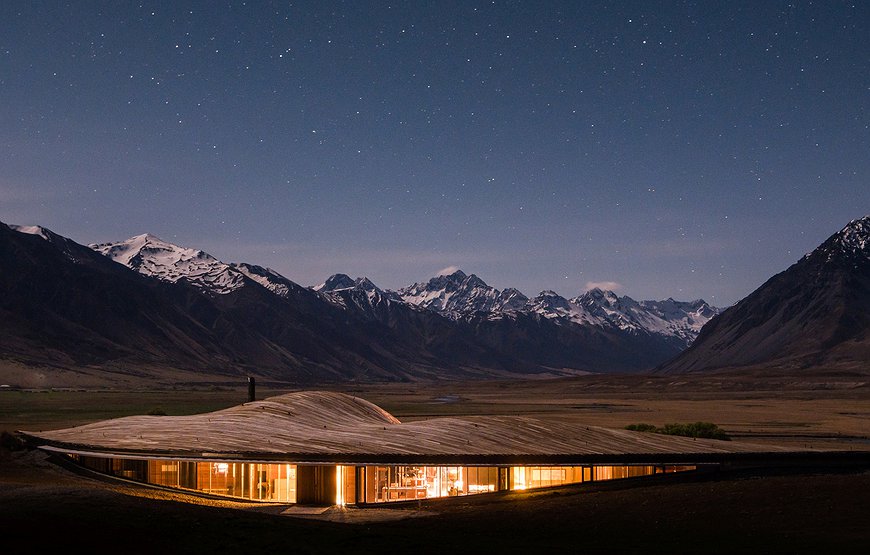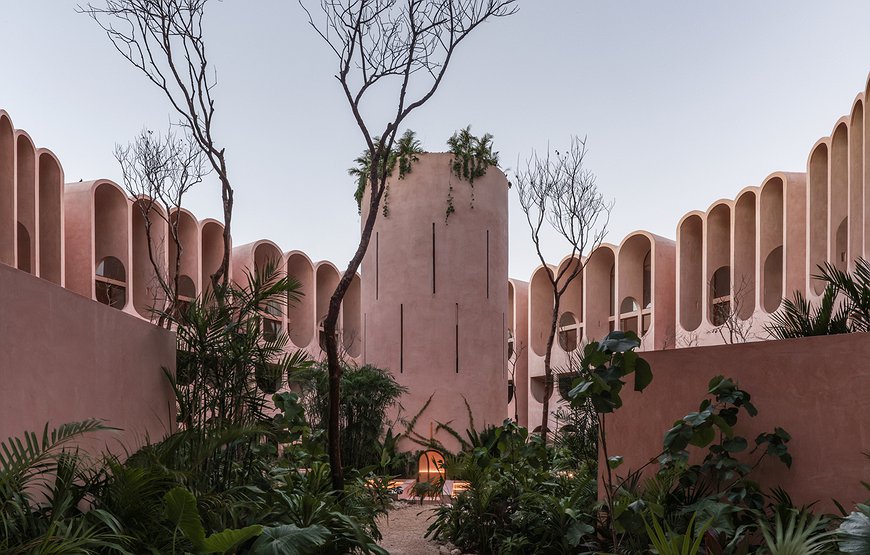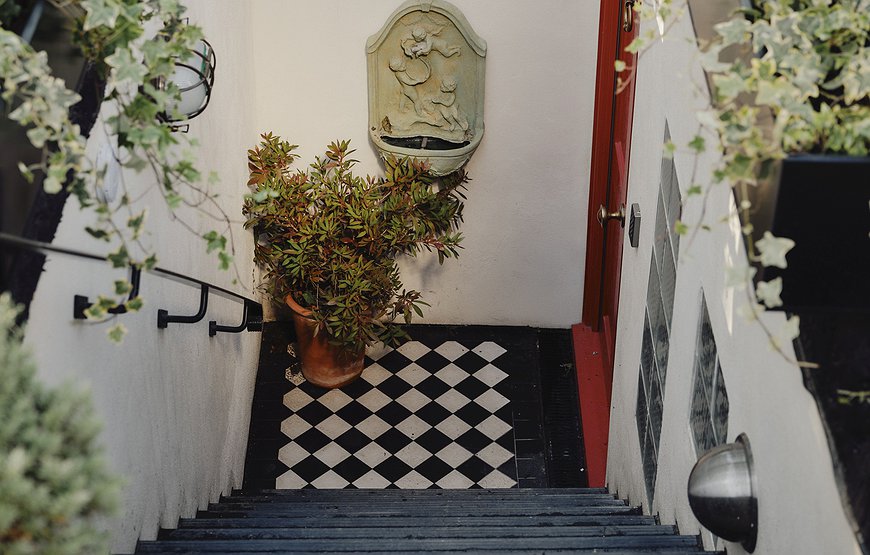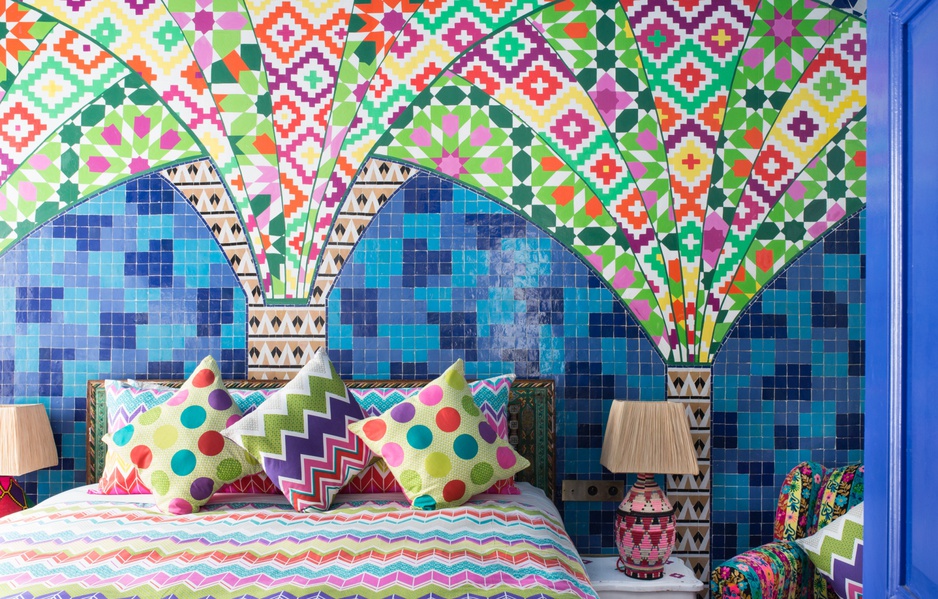
Salut Maroc sits in Essouira's historic Medina at the landmark fortress walls. A small path leads to its entrance, squeezed between the brick walls of the historic ramparts and the hotel's building.
You can't miss its main door, as the former merchant's house's facade is adorned with beautiful turquoise-blue wooden shutters.
This vivid signature style is continued throughout the hotel's premises. As a result, Salut Maroc accomplishes its design target with flying colors (pun intended!).
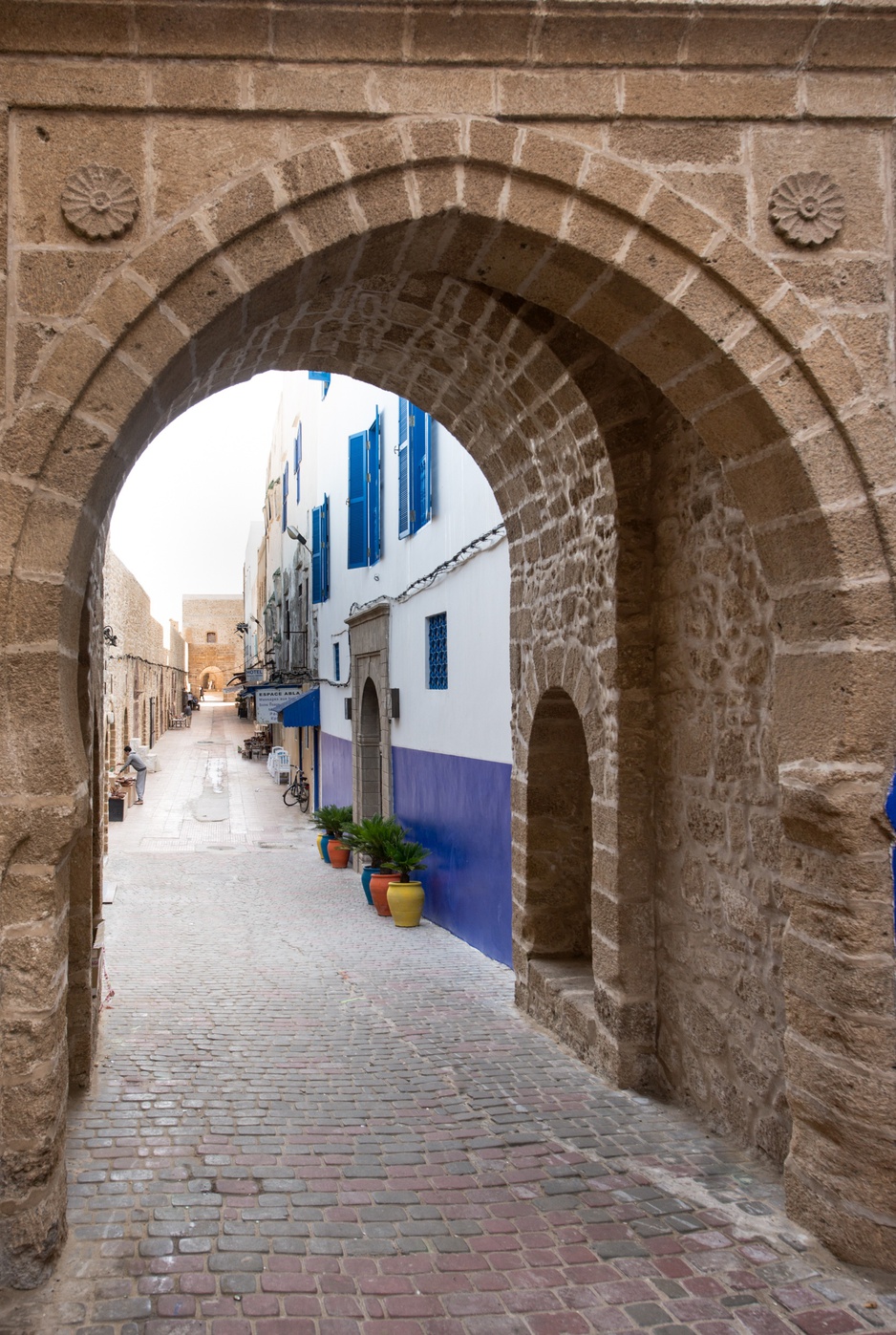
Essaouira
Essaouira's old town is a Unesco World Heritage Site, including its oceanside ramparts.
Morocco's famous coastal town was built as a fortress in the 18th century by the Moroccan King, Mohammed III.
The goal was to create the closest harbor to Marrakesh, which gives it its present-day advantage in tourism.
Although a set of small islands, including the largest, Mogador, protects the bay of Essaouira, it still gets strong currents and wind, making it a perfect spot for kitesurfing and windsurfing.
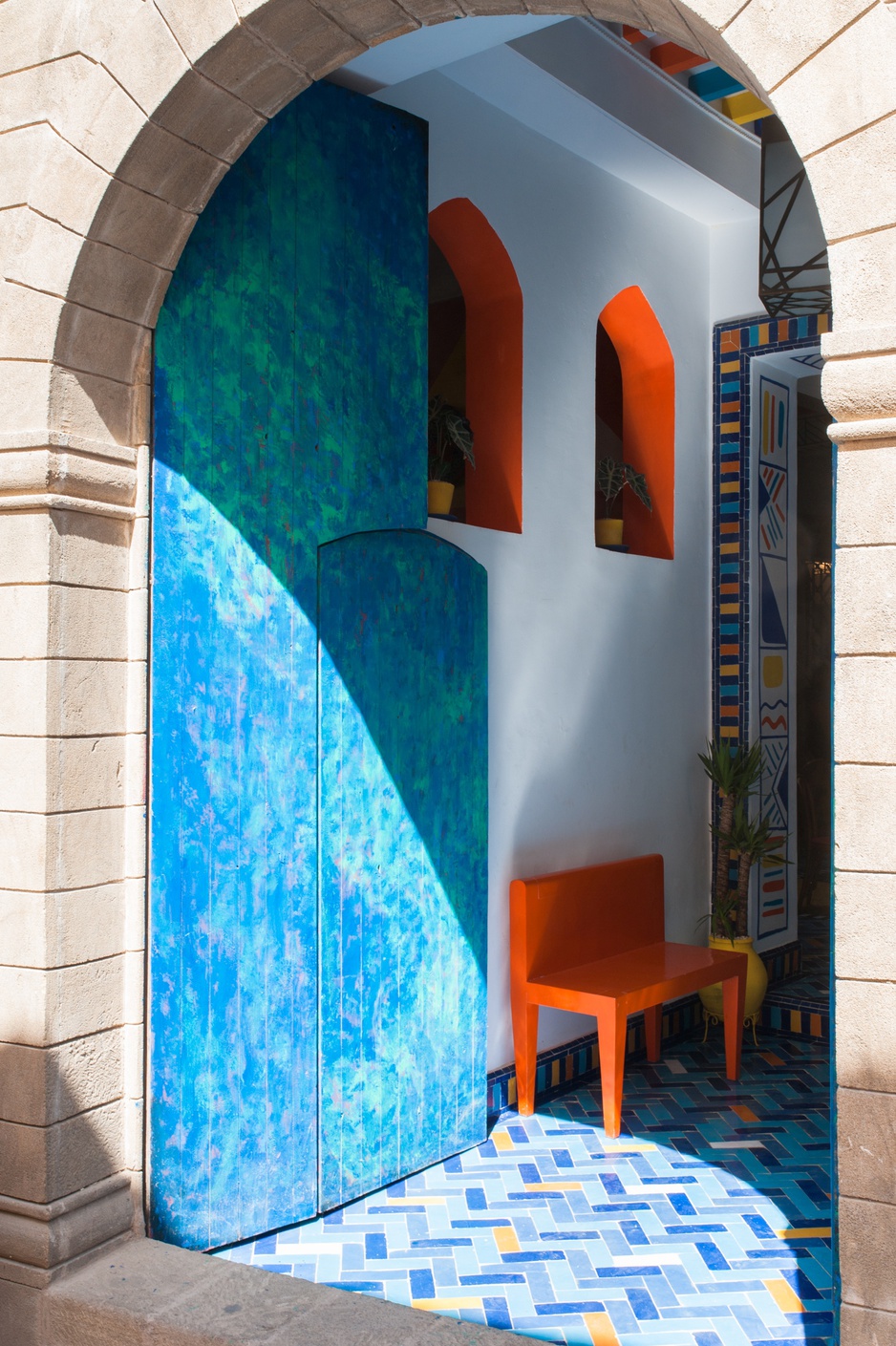
The alley that runs along the beachside walls of the fort leads to the hotel's main entrance.
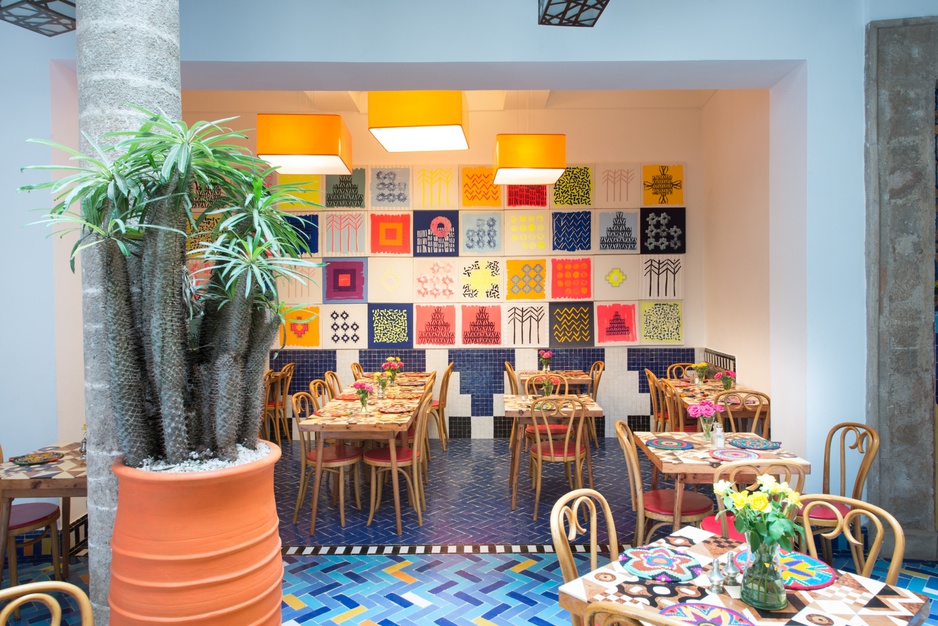
The fusion of vibrantly colored tiles, Islamic patterns, and vintage and modern furniture works together in a previously unseen symbiosis.
The interiors were renovated by local artisans and by the internationally renowned lead designer and owner, Helen Howat.
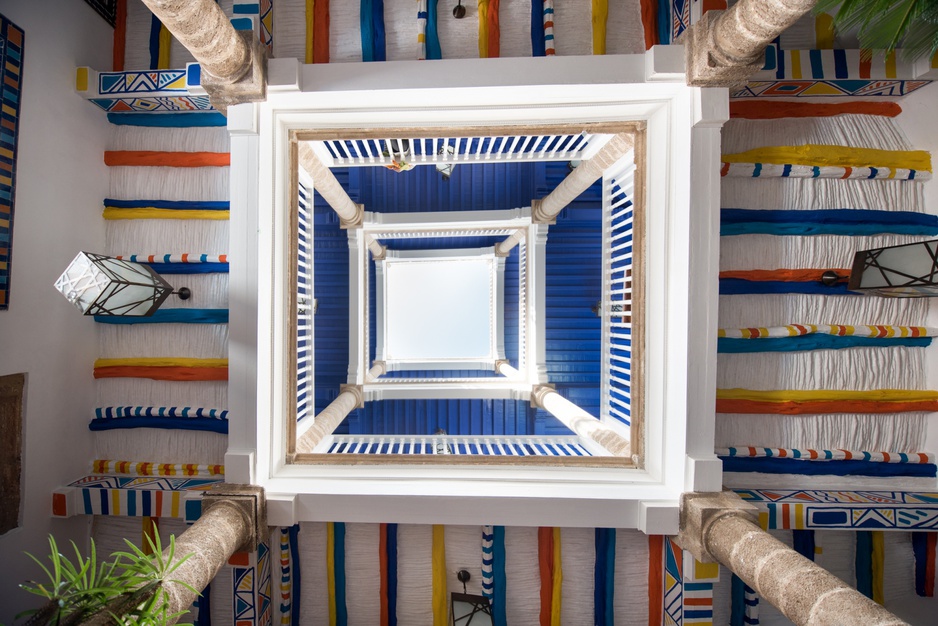
The hotel showcases what happens when traditional artisanal Moroccan skills meet contemporary design ideas.
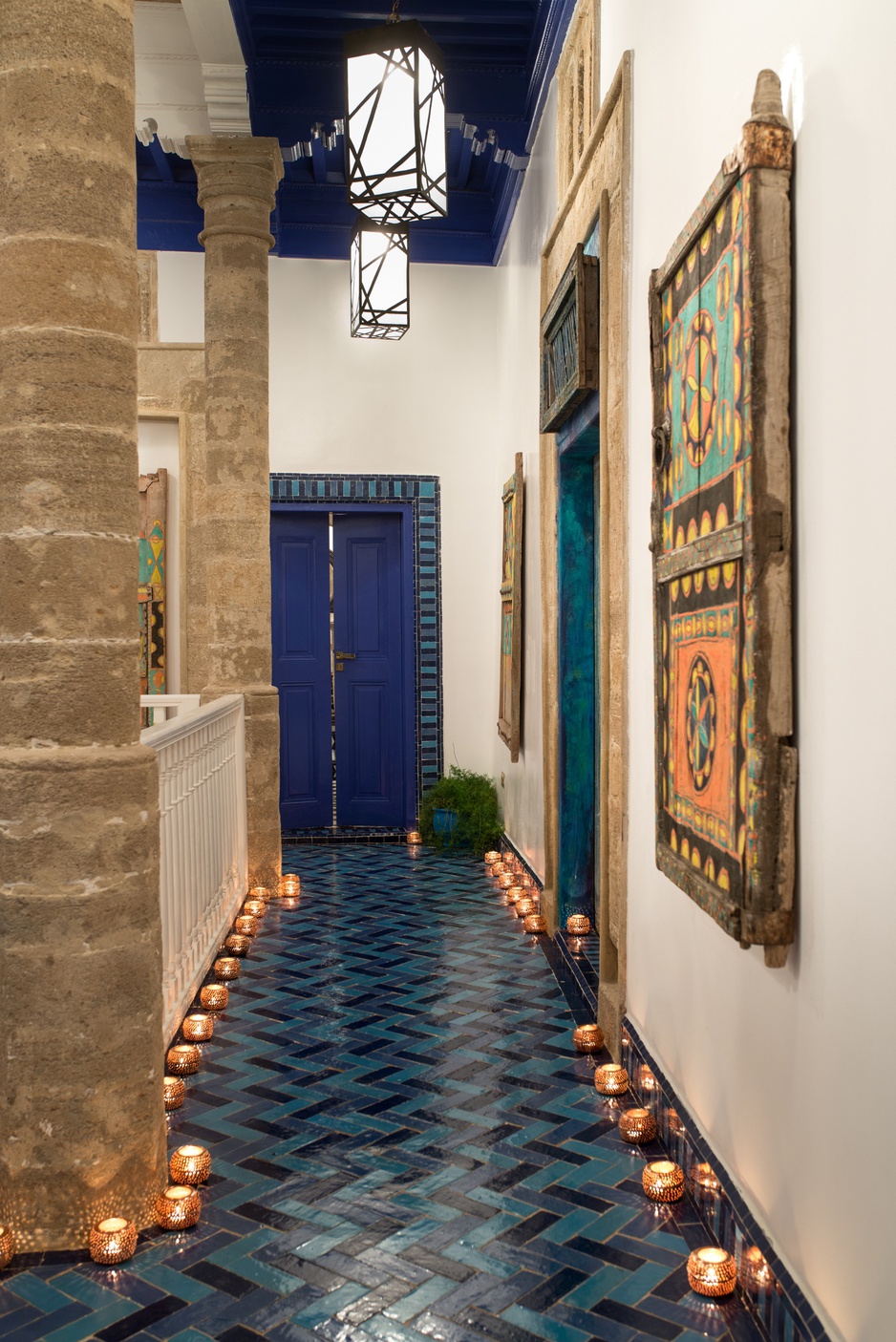
The result? In one word: spectacular. If you've tried mixing more than two colors, you know the challenge of getting them to fit together.
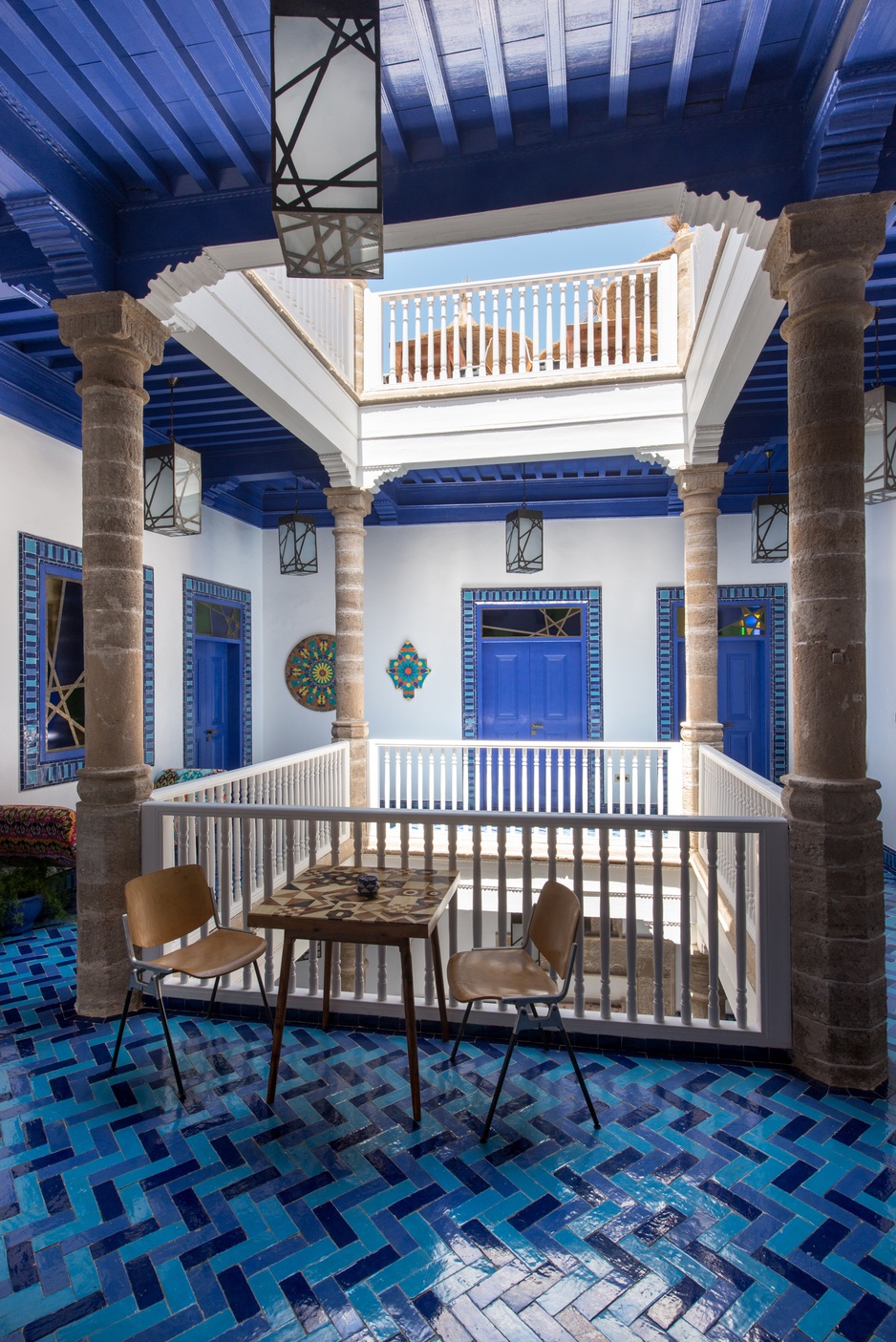
Salut Maroc uses not two but a palette of colors and boldly blends them without ever turning into kitsch.
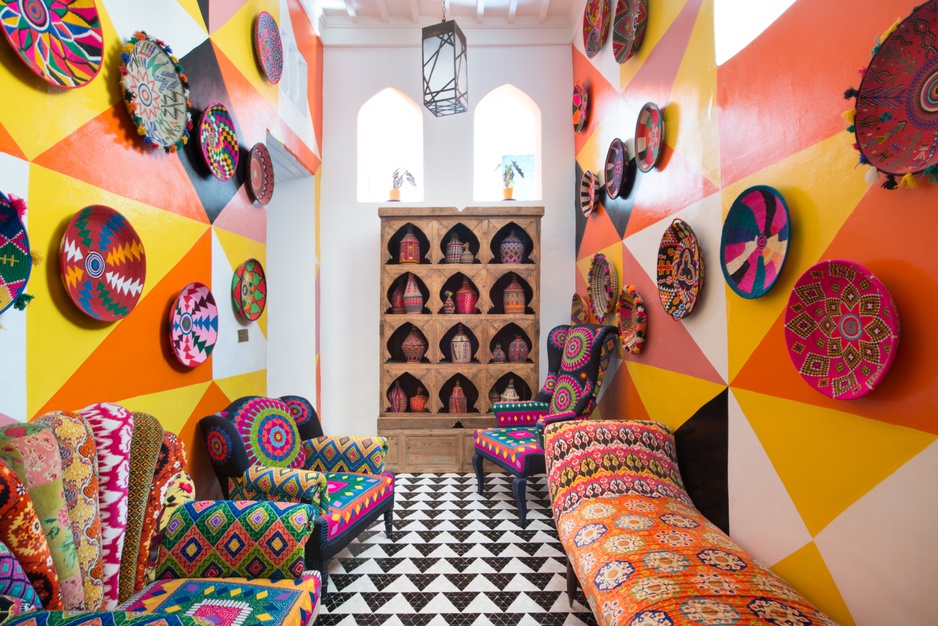
The hotel's vibrantly colored library is home to a collection of books that you can read in this sunlit and peaceful corner.
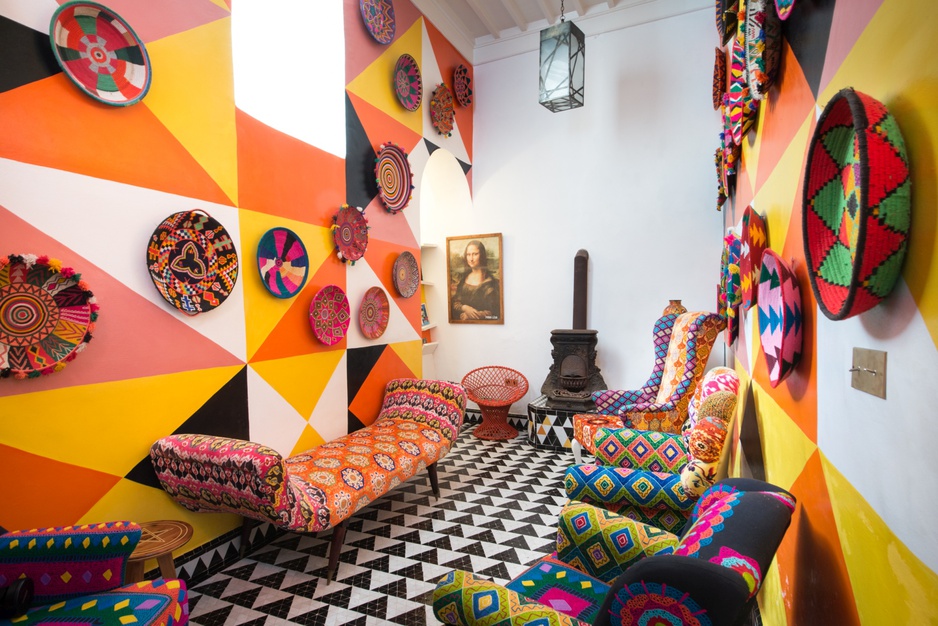
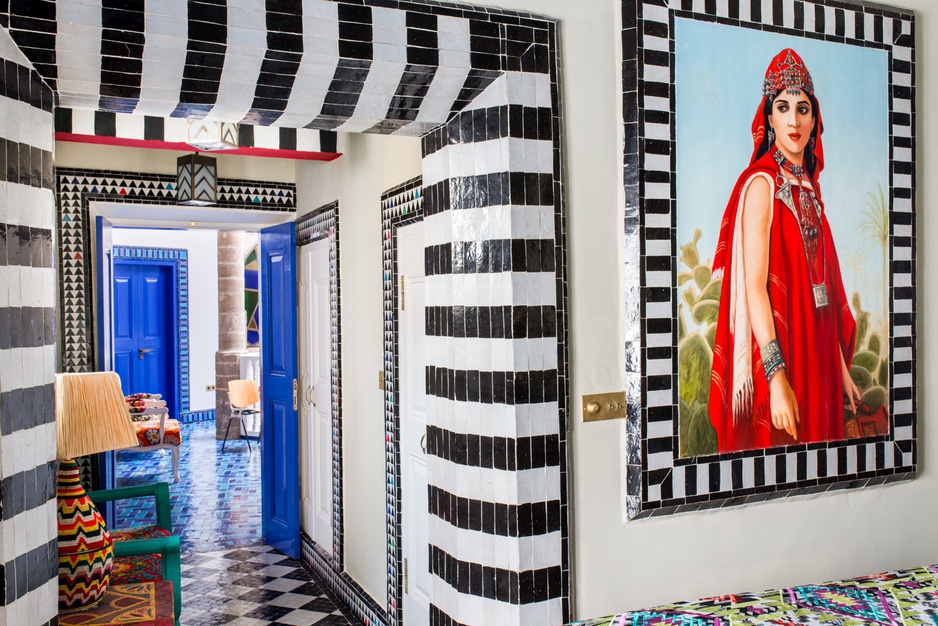
The Berber Double Deluxe suite has a tribal-inspired design, Berber wall art, and a gorgeous copper bathtub. The portrait on the wall depicts Aisha, a woman who used her beauty to lure soldiers to their death and revenge her husband's death.
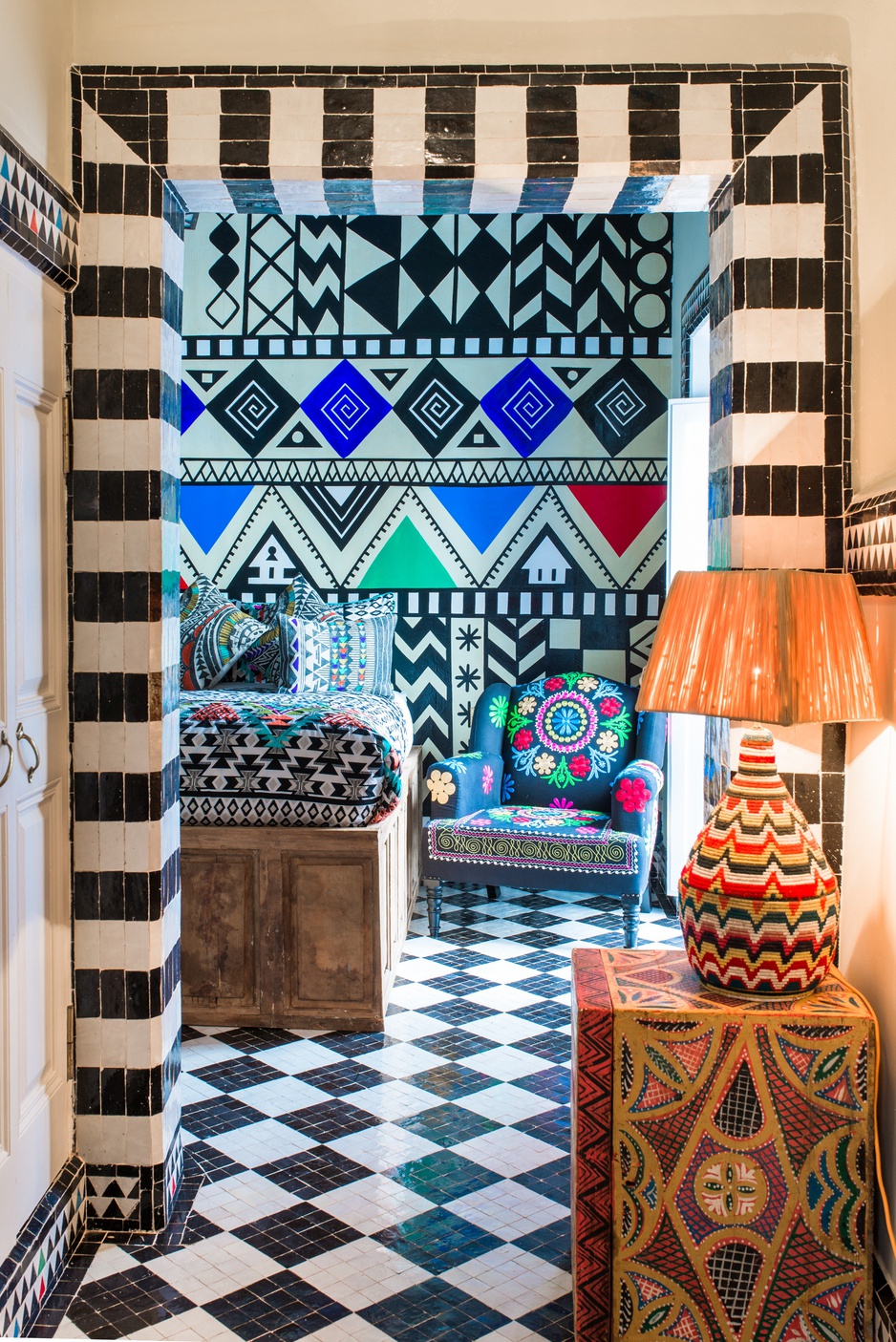
Salut Maroc is a small boutique hotel with only eleven bedrooms and suites. But these rooms have definite bragging rights within the hotelier community. They are all uniquely designed with their own color combinations and design identity. Just look at these eye-wateringly beautiful interiors!
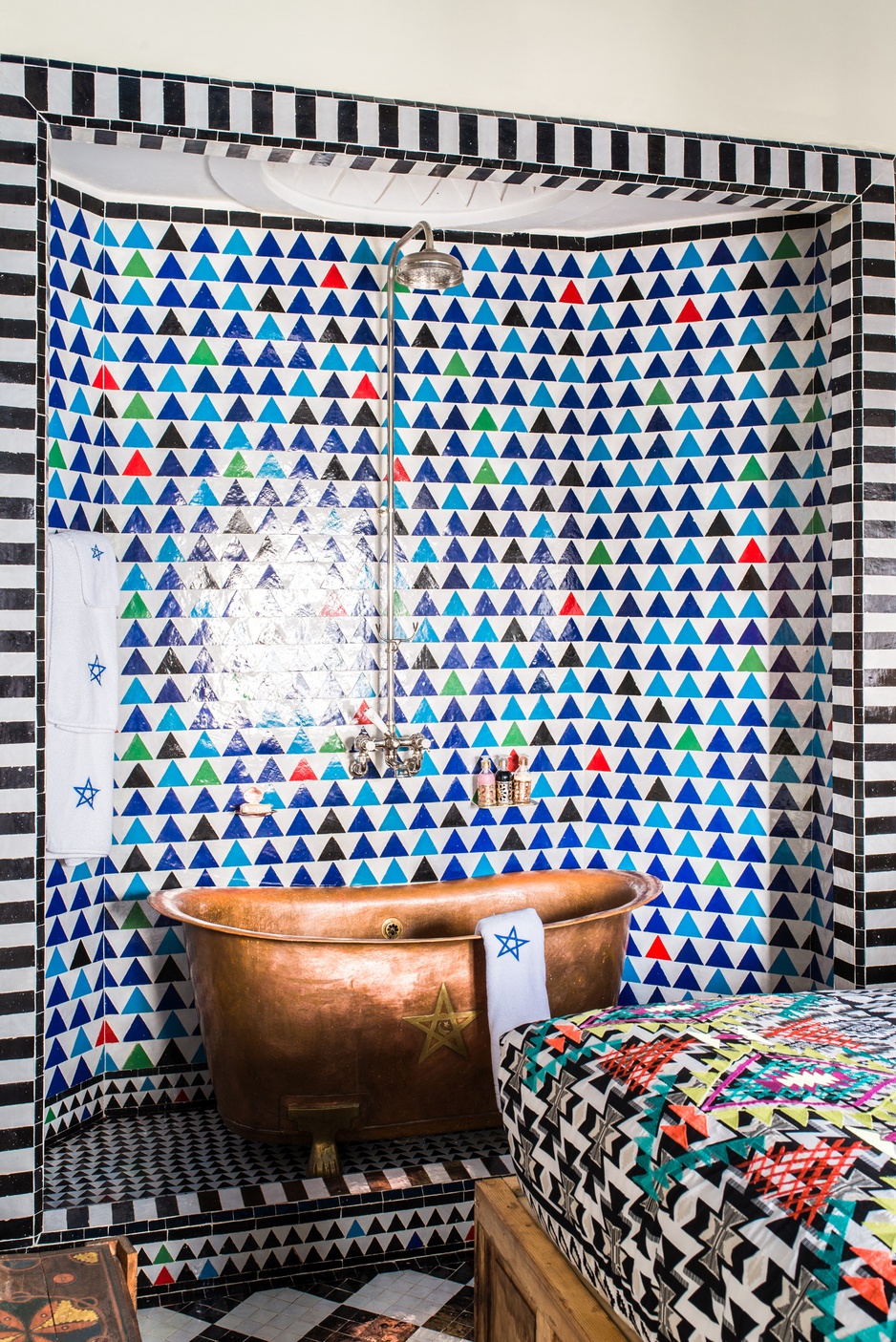
The signature copper bathtub of the hotel with Morocco's iconic pentangle engraved into it. The star's five points represent love, truth, peace, freedom, and justice.
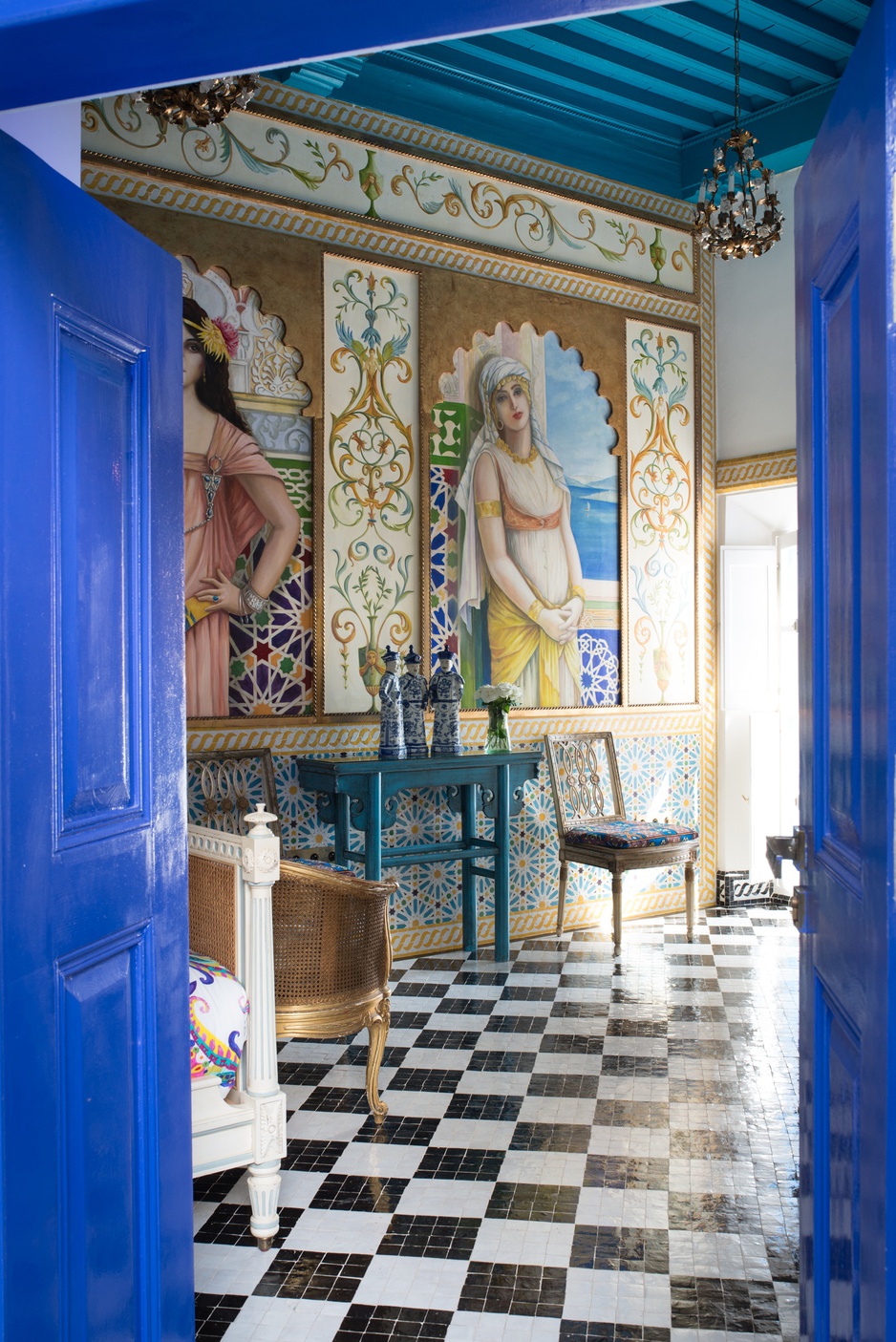
Boudoir Seaview Double Suite, located on the second floor, is an ode to the Three Beauties - Beautiful Moroccan women painted on canvas by European Artists.
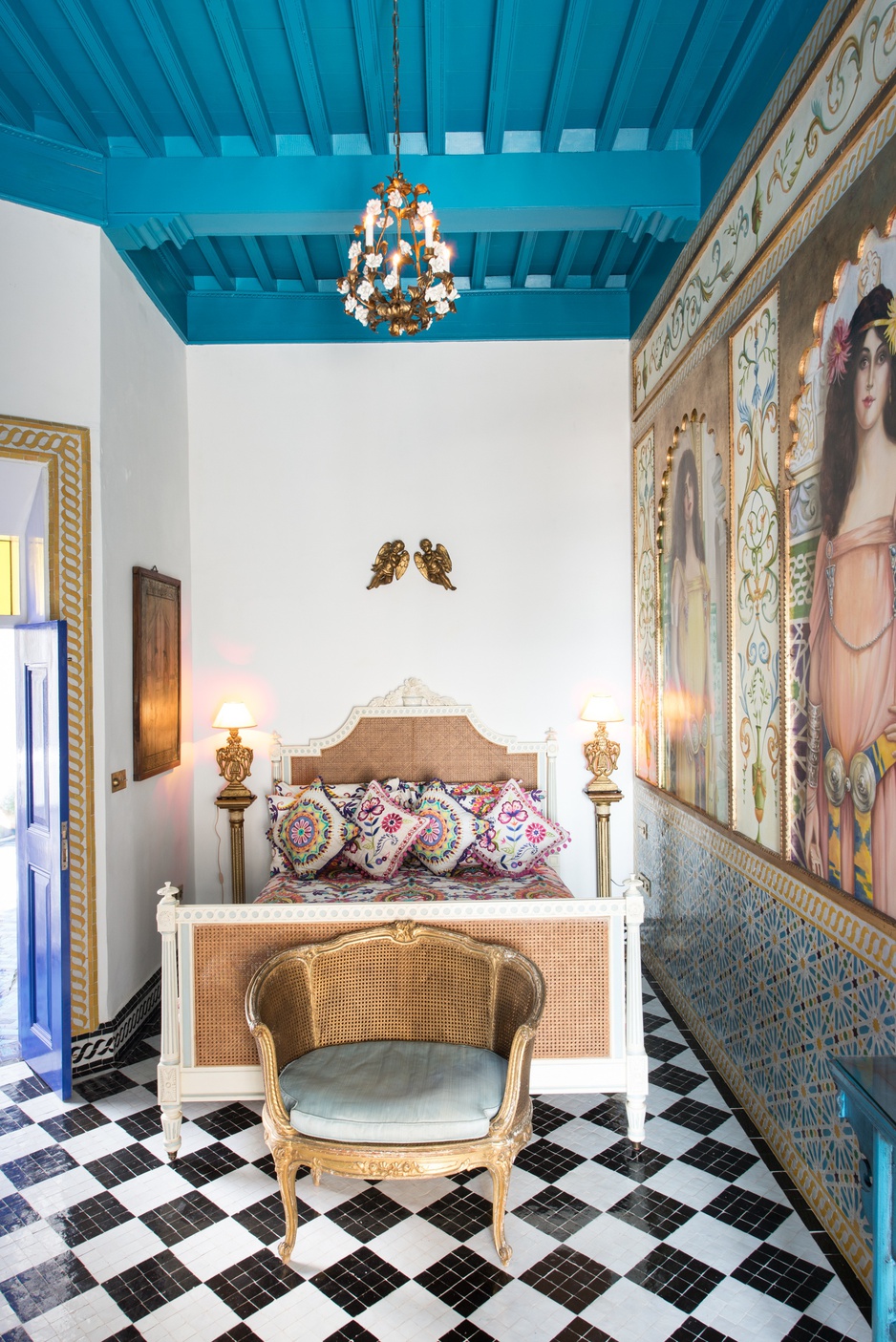
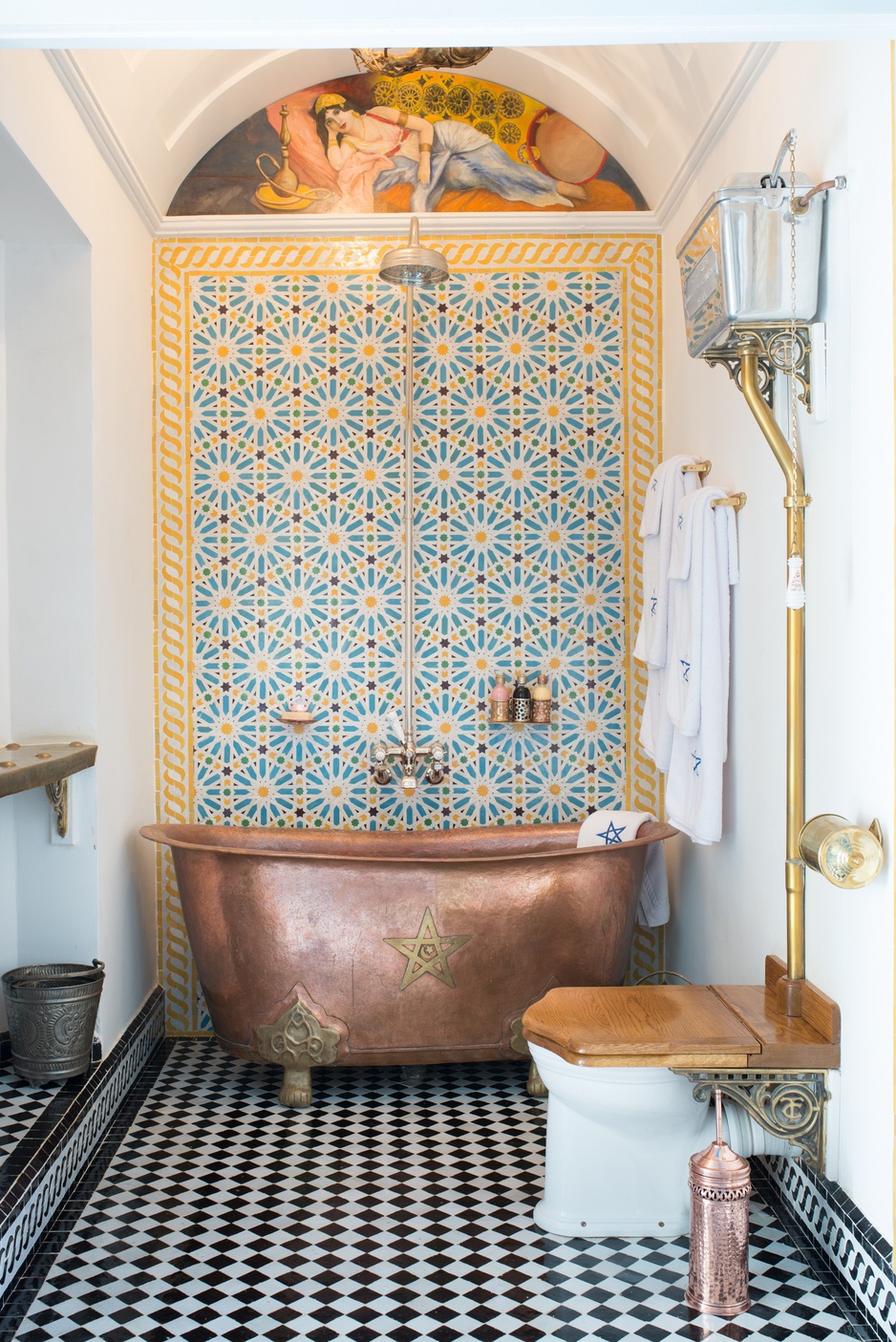
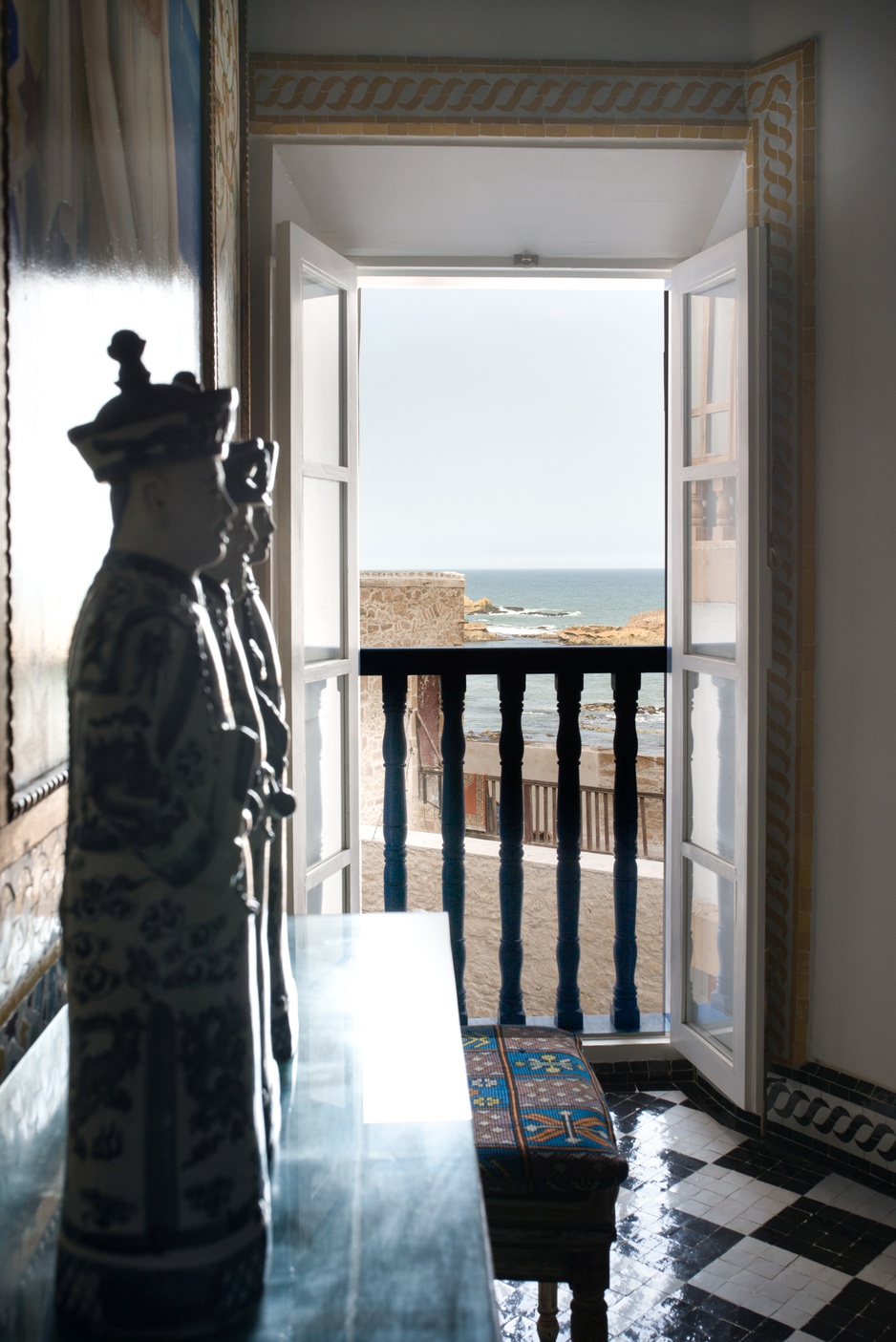
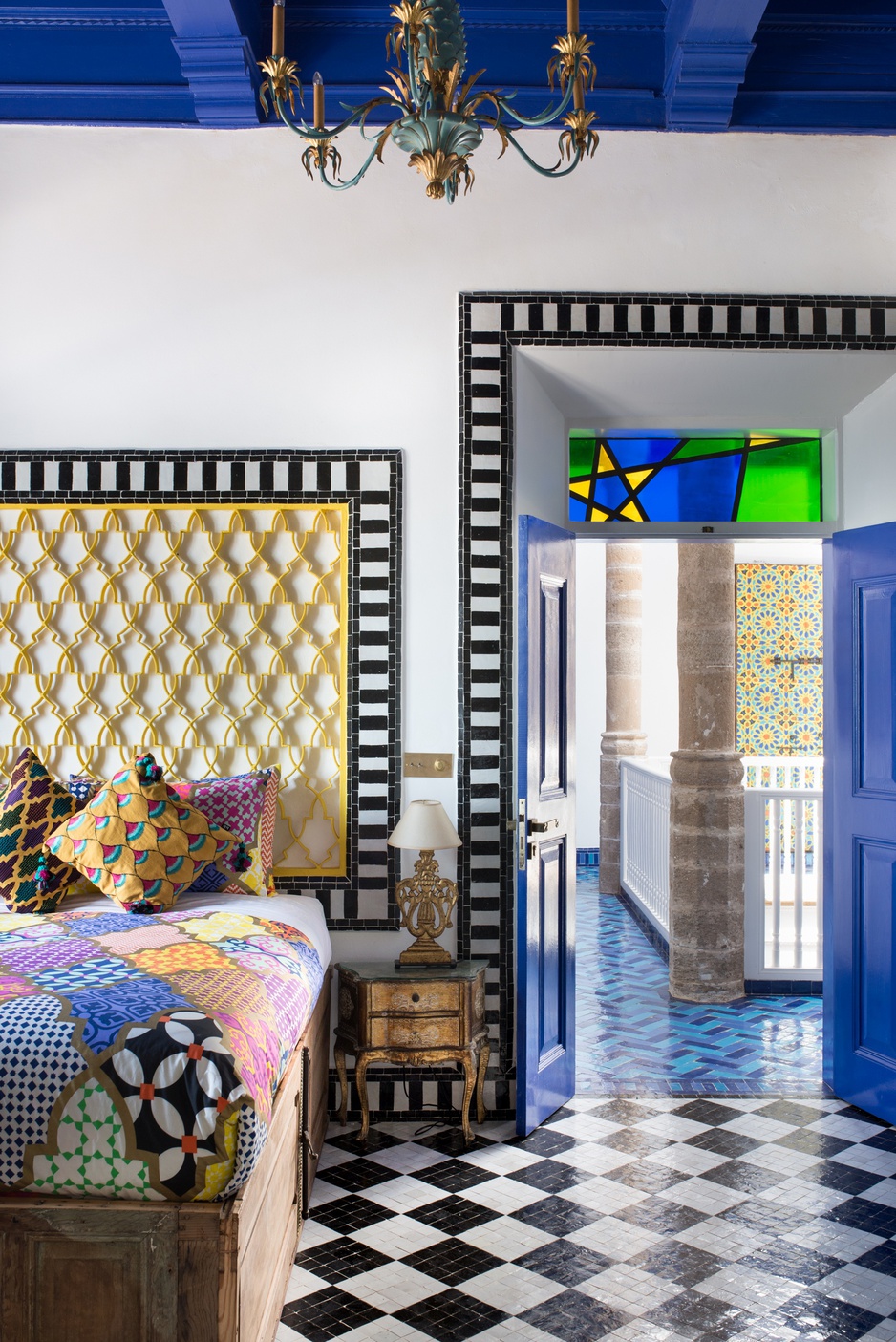
Salut Maroc's most expensive suite is a special one. Casablanca Seaview Suite is designed by Zellige artisans incorporating Moroccan trellis tiles and traditional mosaic tile patterns.
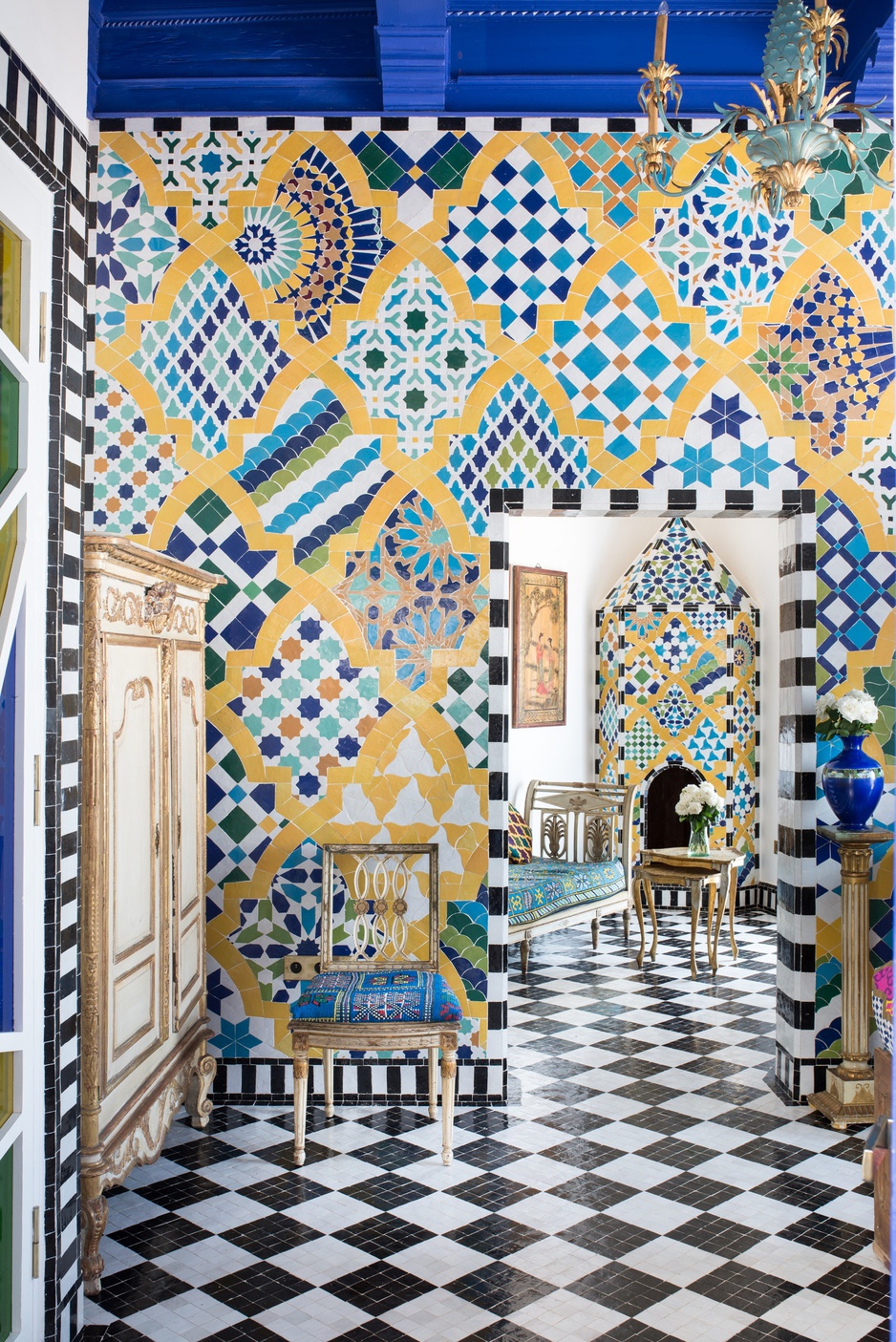
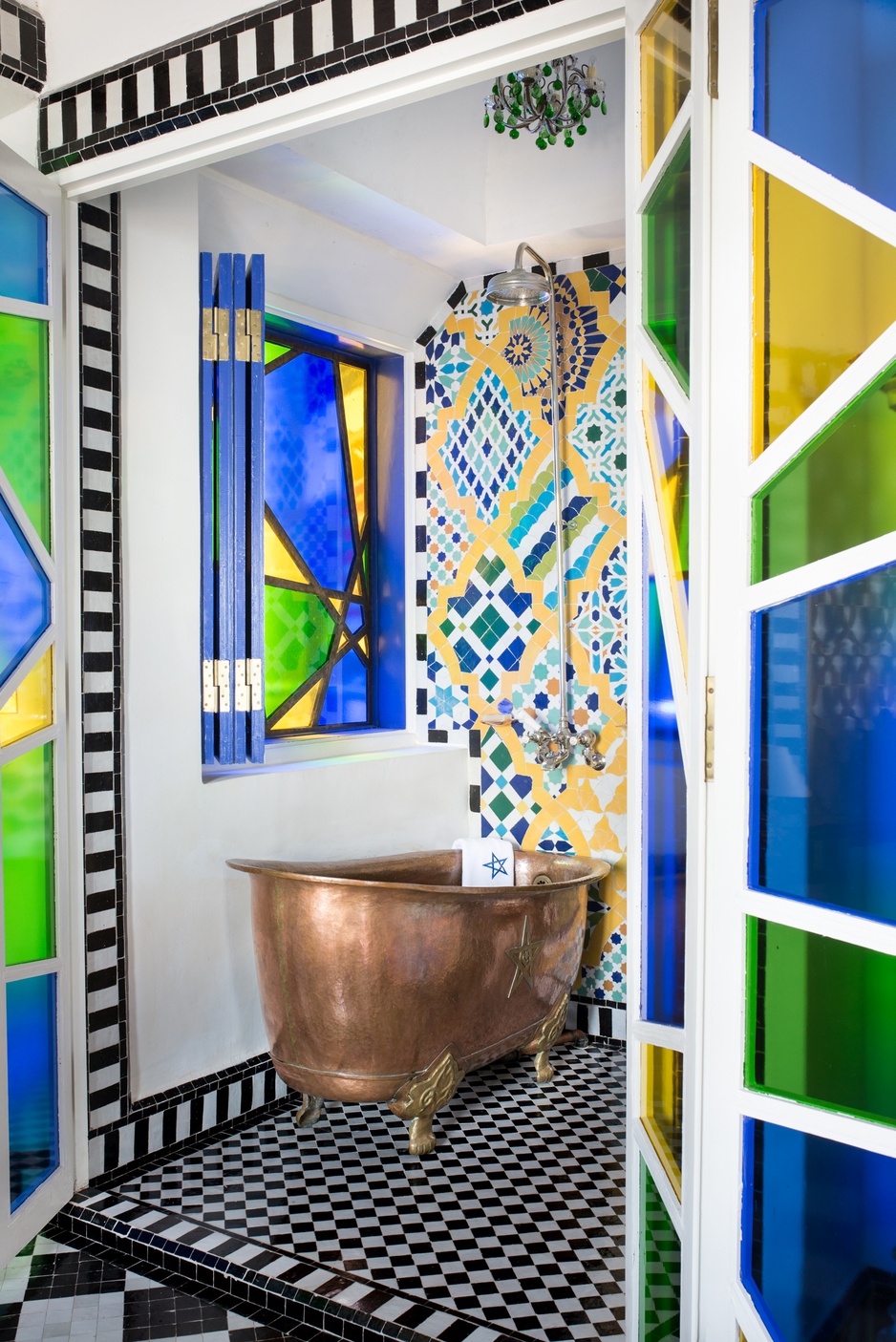
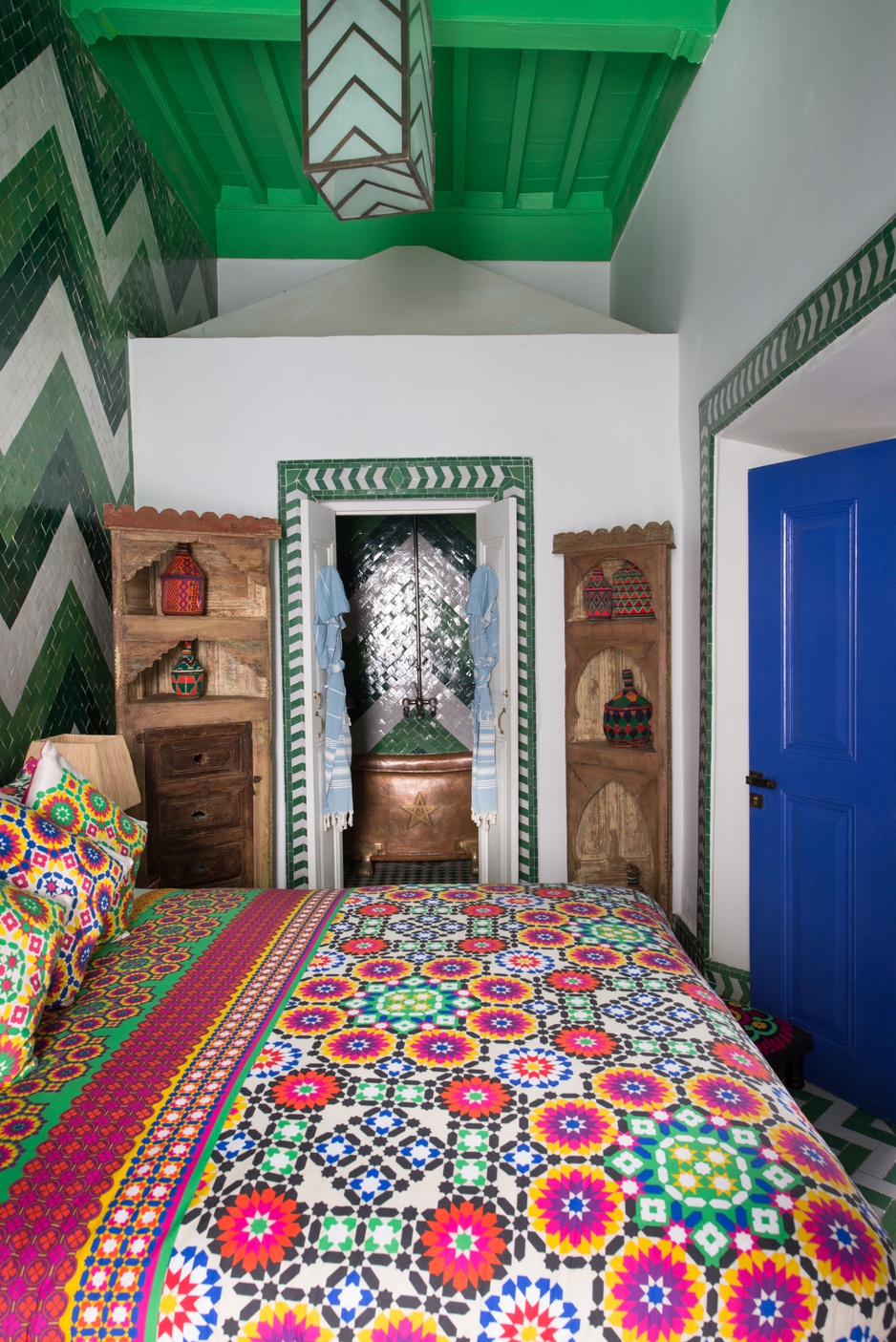
Fez Double Deluxe Suite takes inspiration from mosque interiors and the famous rooftops tiles of Fez.
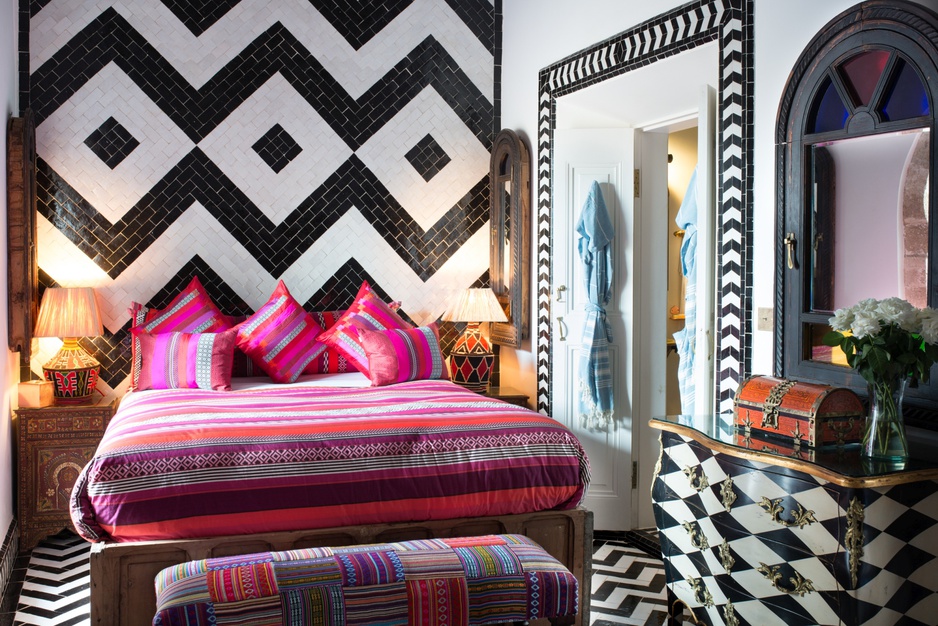
Maghreb Junior Suite comes with a private balcony seating area and gorgeous stone arches. The walls are decorated with black and white Moroccan mosaic tiles.
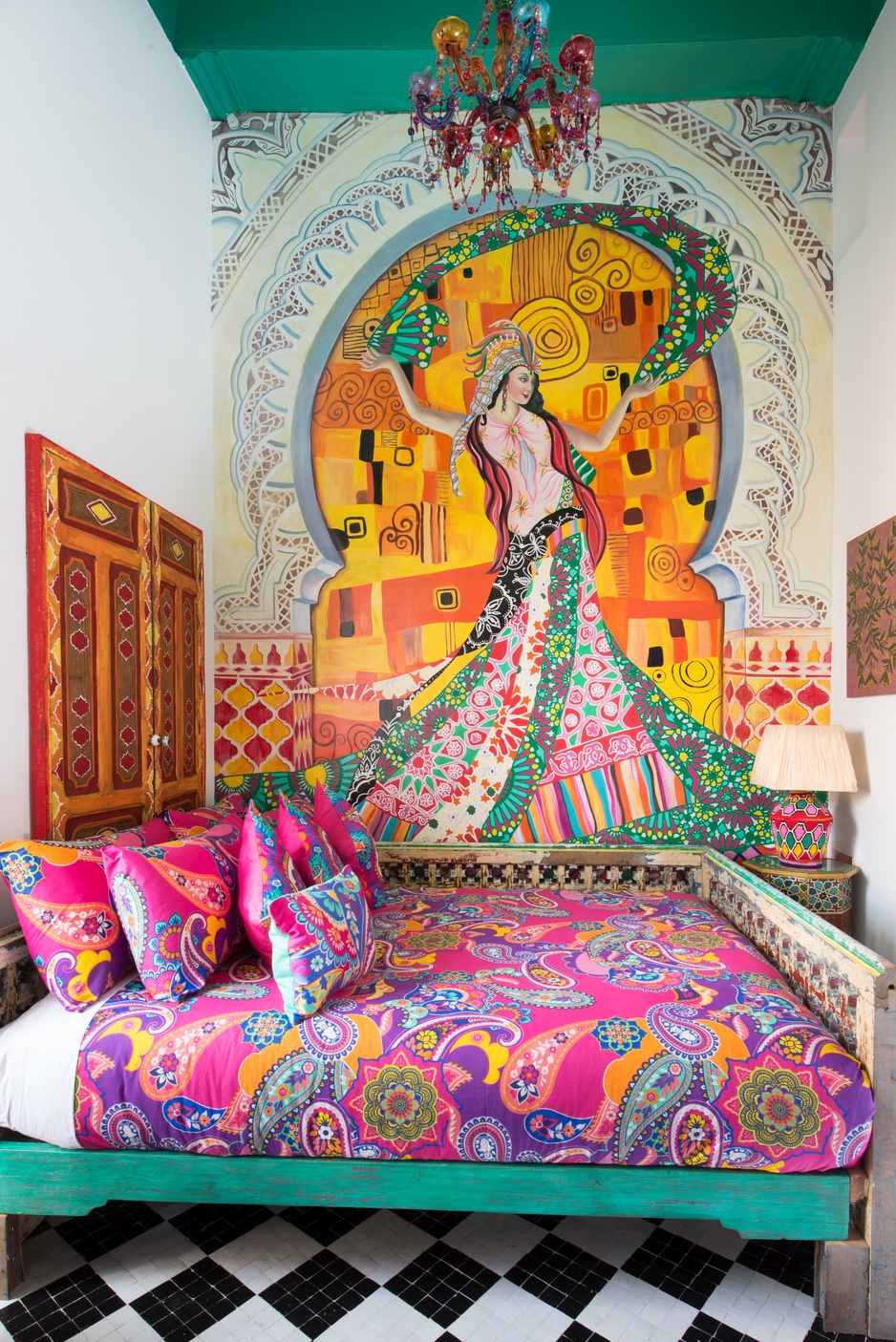
The hotel's smallest room is Malika, Arabic for Princess. The dominant mural portrays a dancing girl with an exotic flower dress, "The Dancing Princess".
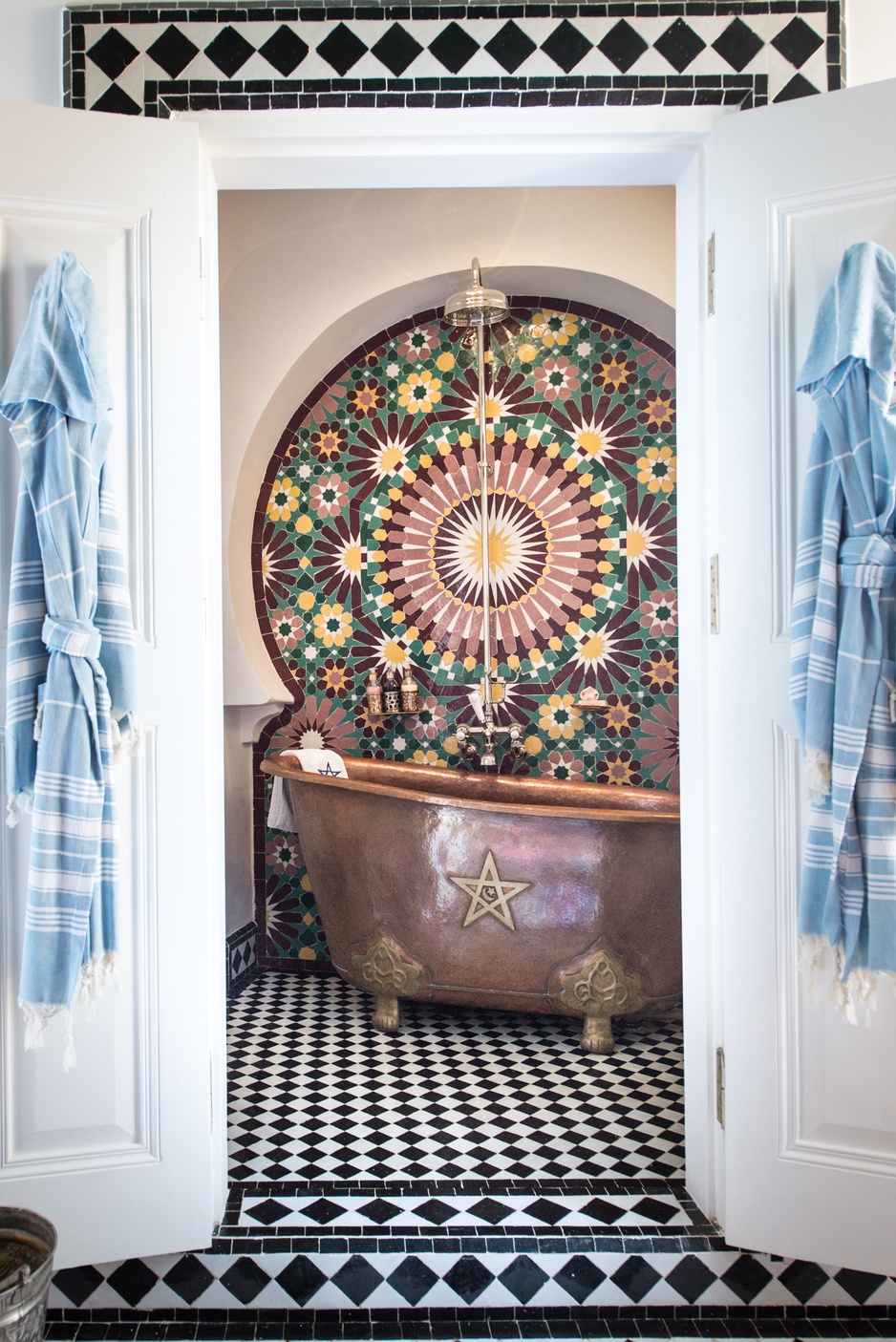
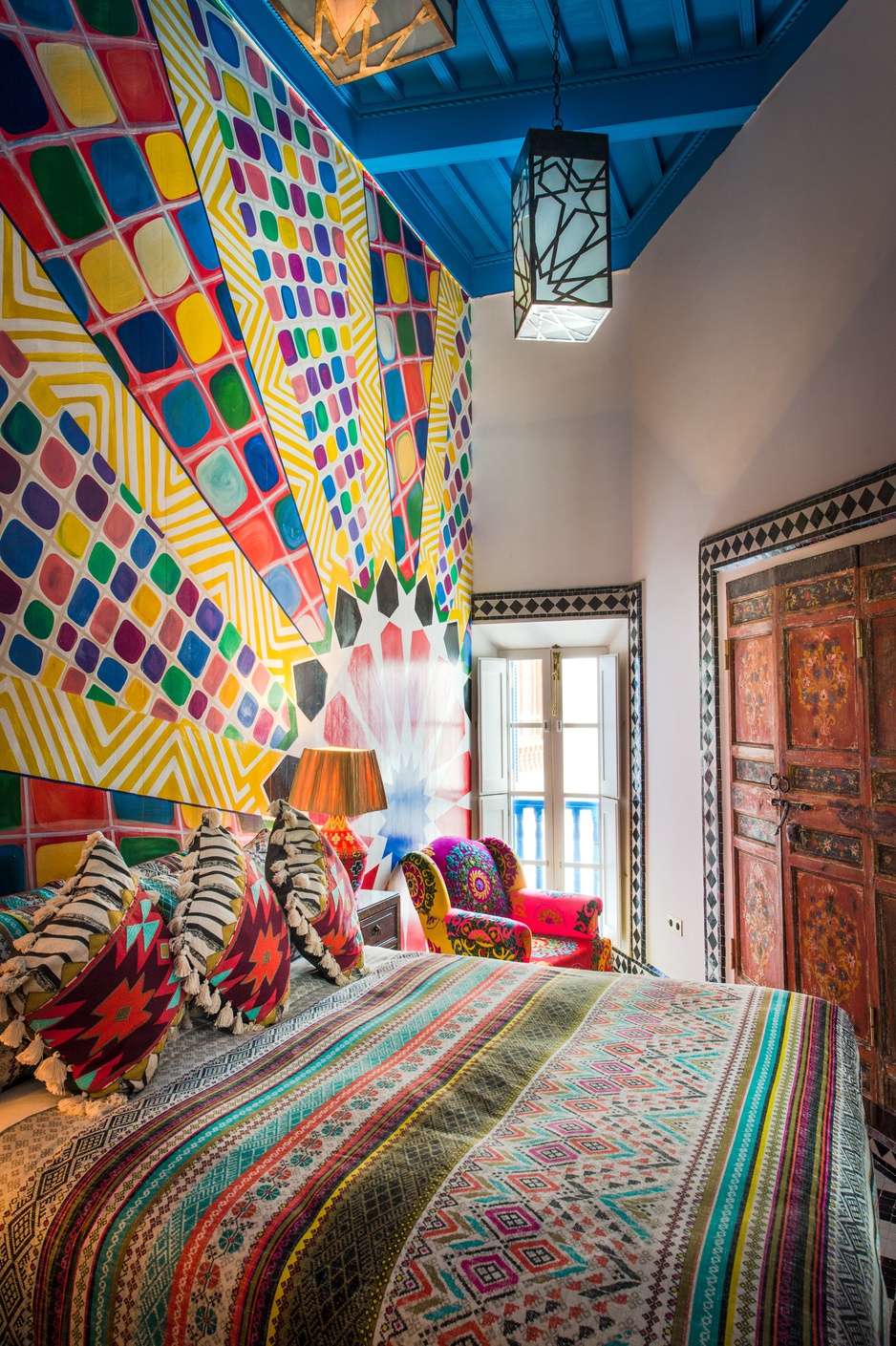
Marrakesh Double Deluxe is the sunburst room that represents the colors of Marrakech and the cavalcade of a leather tannery.
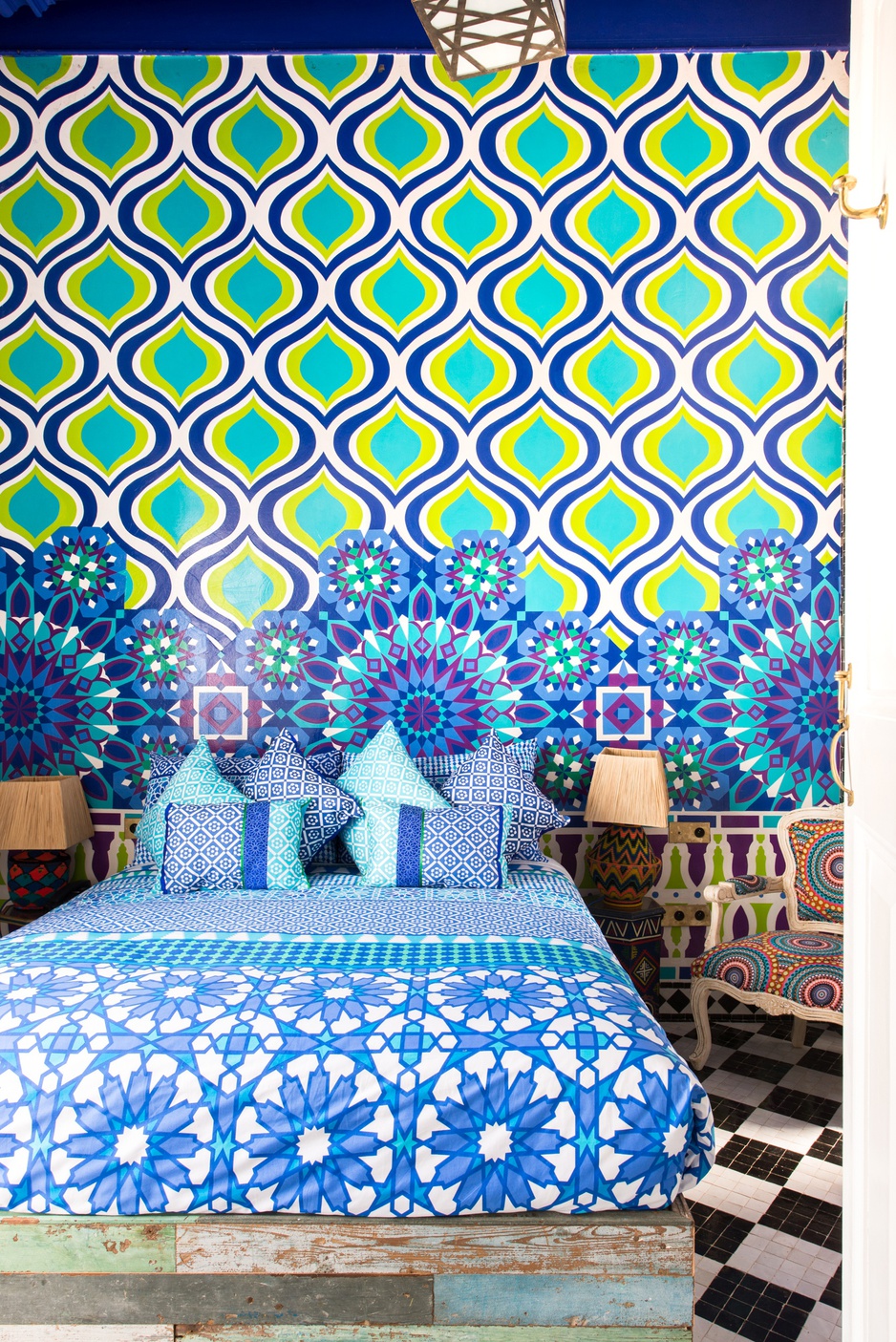
Mogador Seaview Double is the most authentic room in the hotel. Mogador is the old name of Essaouira, and the room's colors represent the sea, the Souiri fishing boats, and the castellated ramparts.
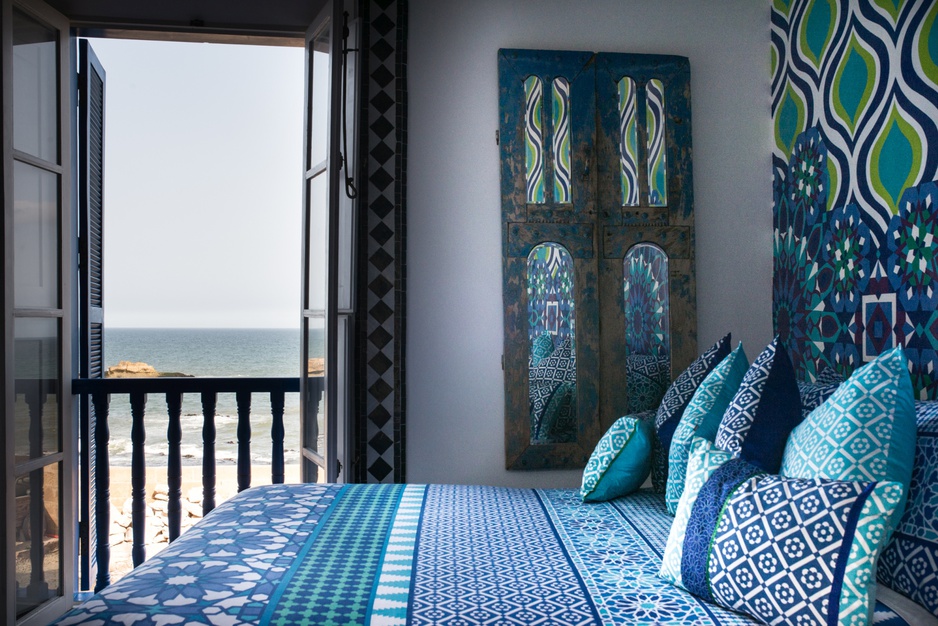
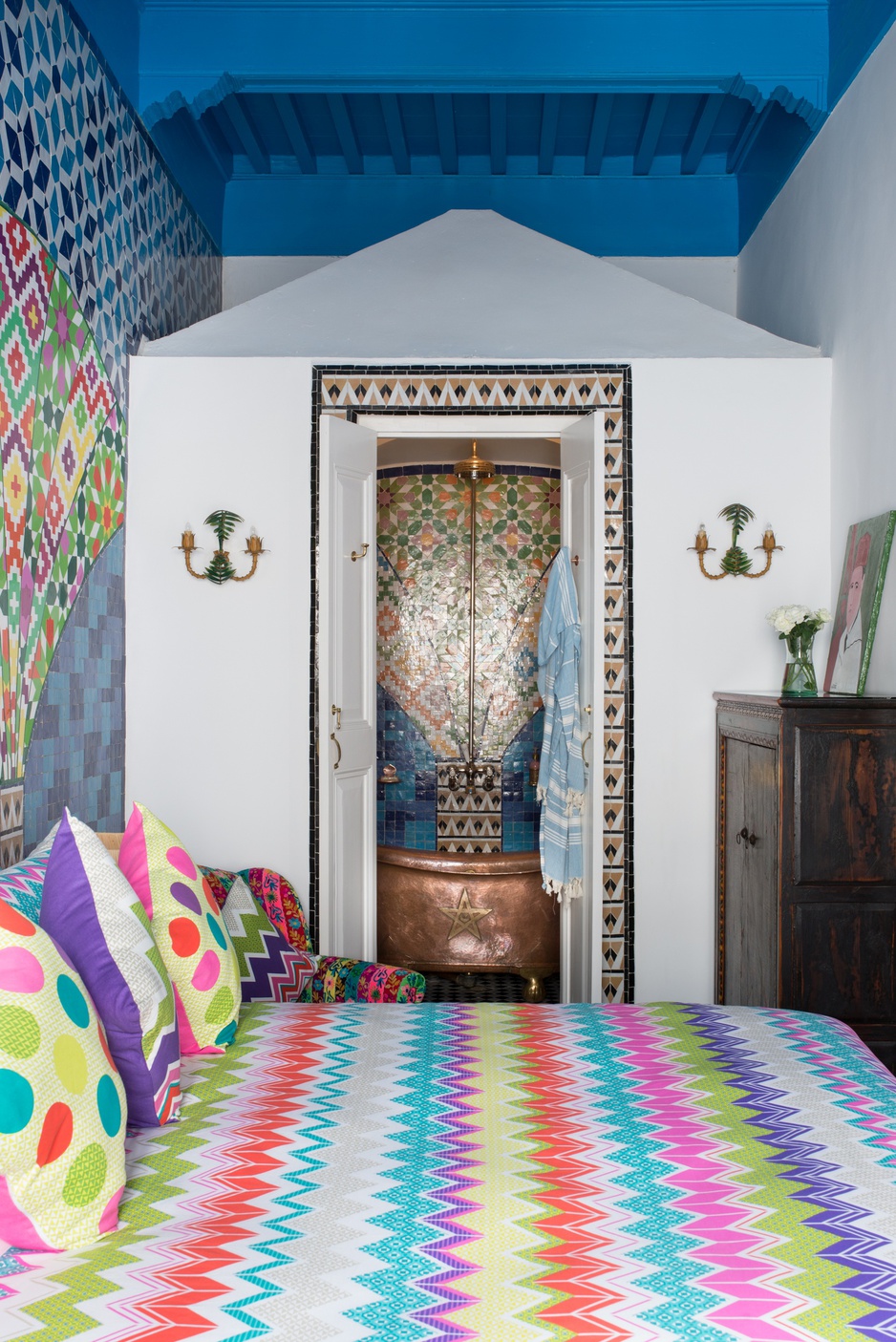
Art deco tile patterns with popping colors created the Palmeraie Double Deluxe Suite's palm oasis silhouettes.
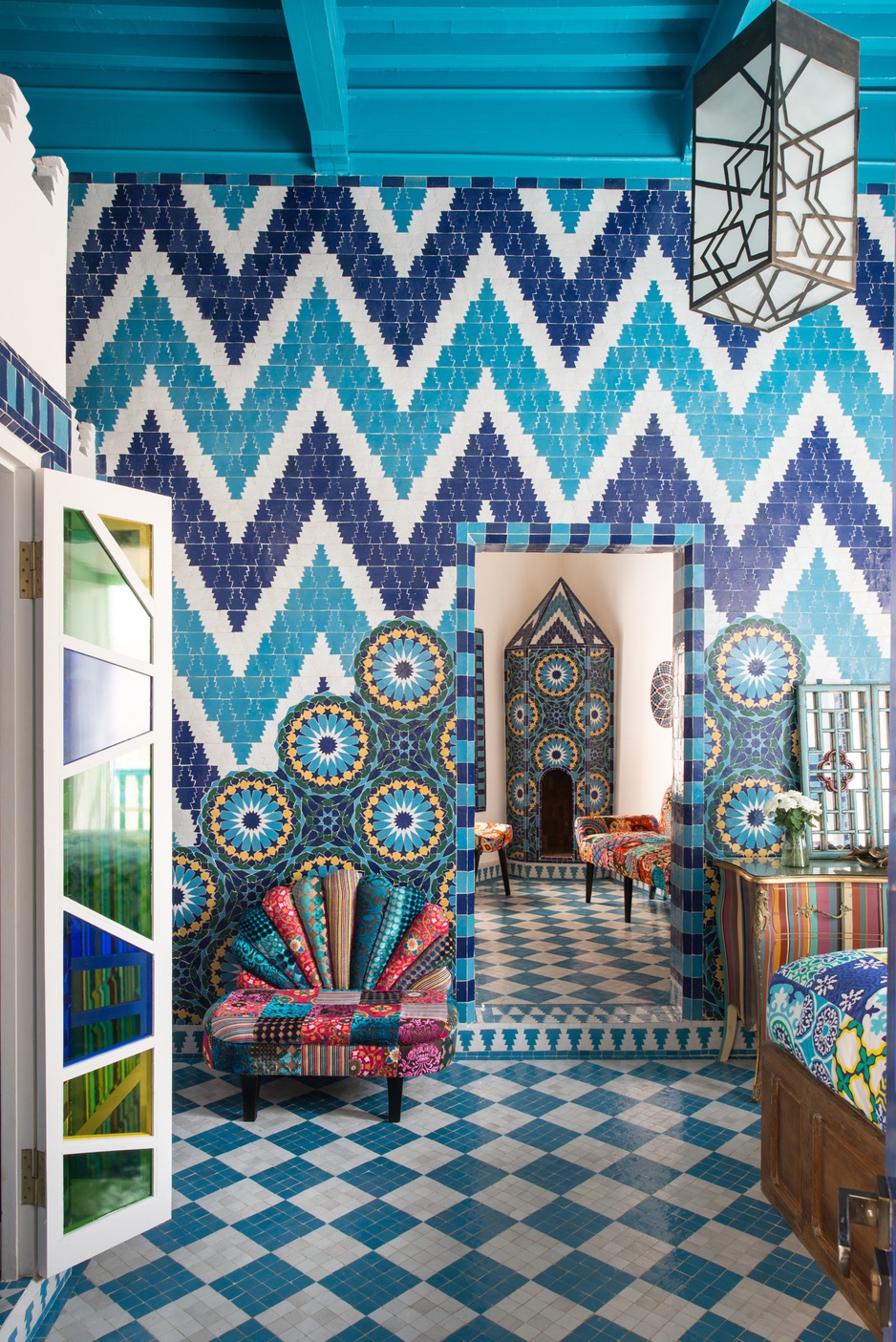
Inspired by the Grand Mosque in Casablanca and the ceramic potteries, Safi Family Suite's design is filled with fine details.
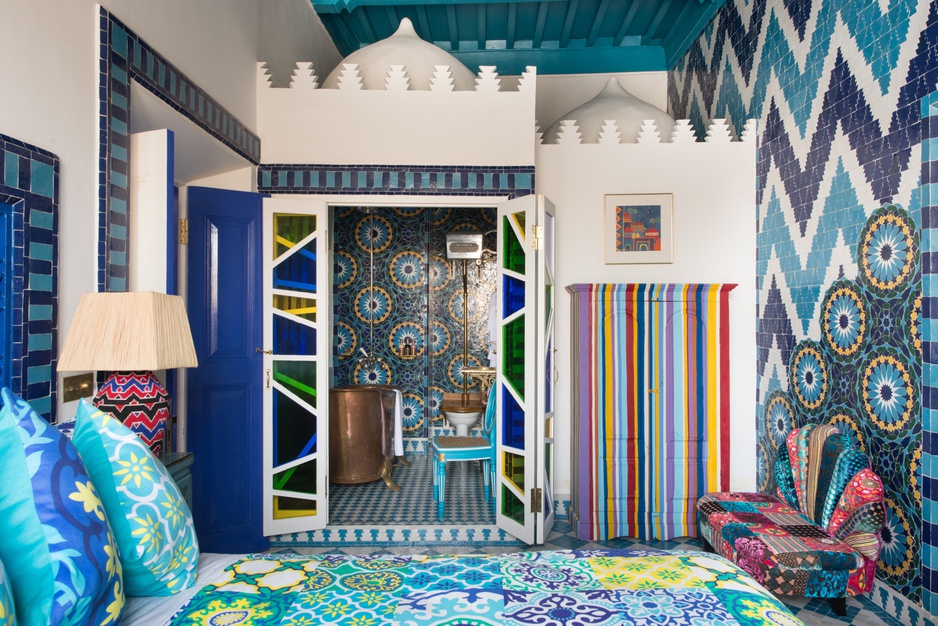
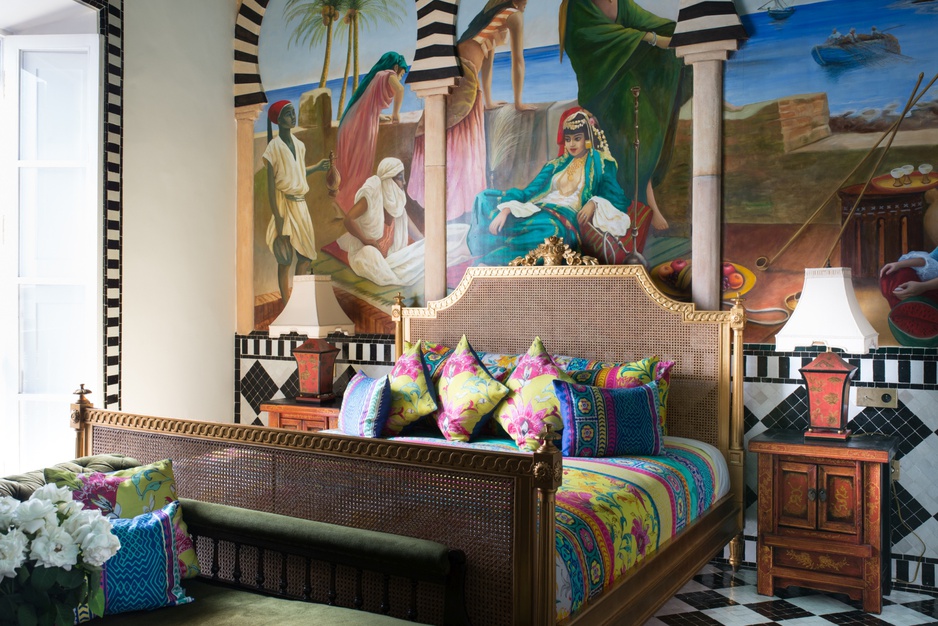
Tangier Seaview Suite's wall art depicts a scene of a bygone Moroccan era.
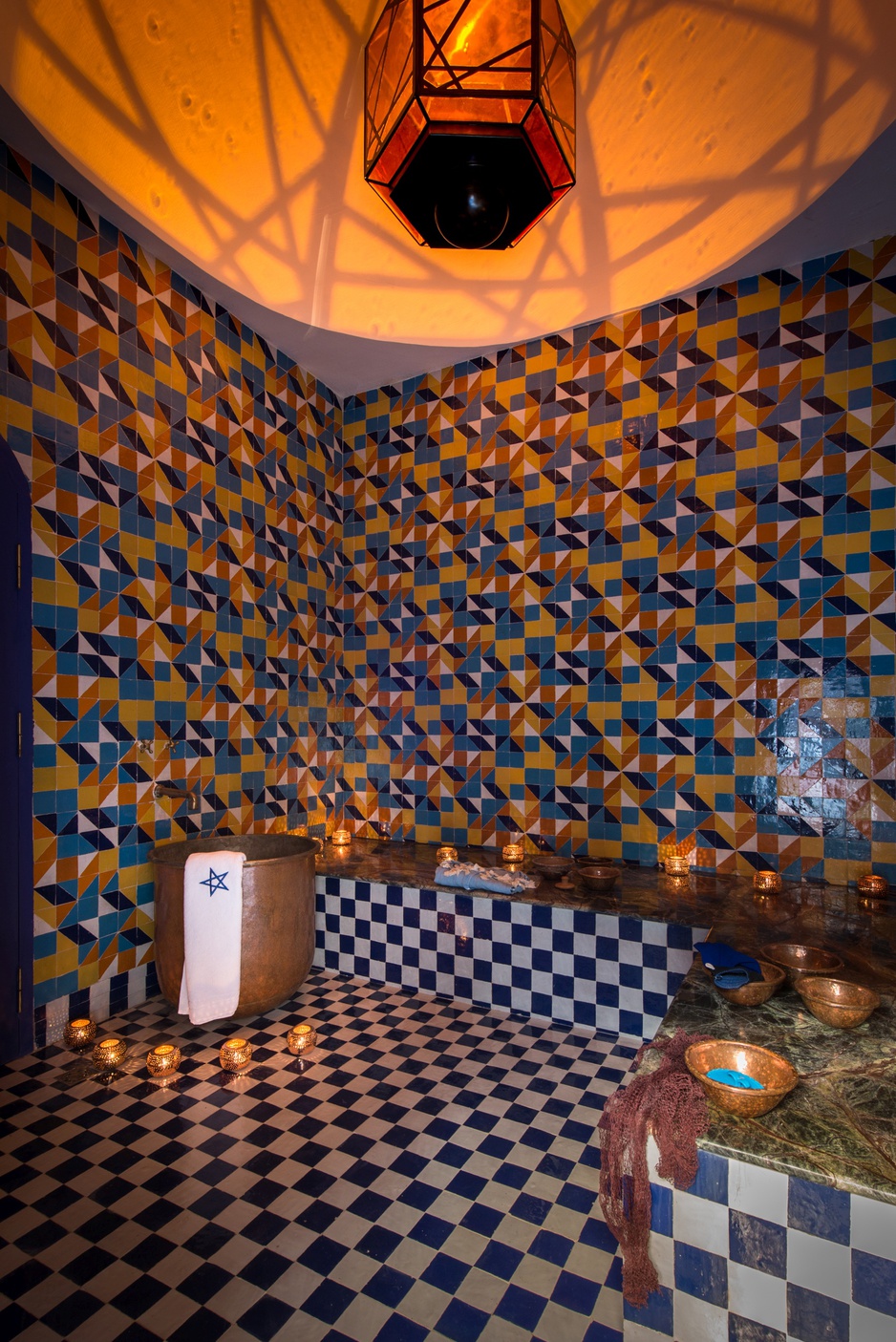
A riad is not complete without a hammam, and it's no different here.
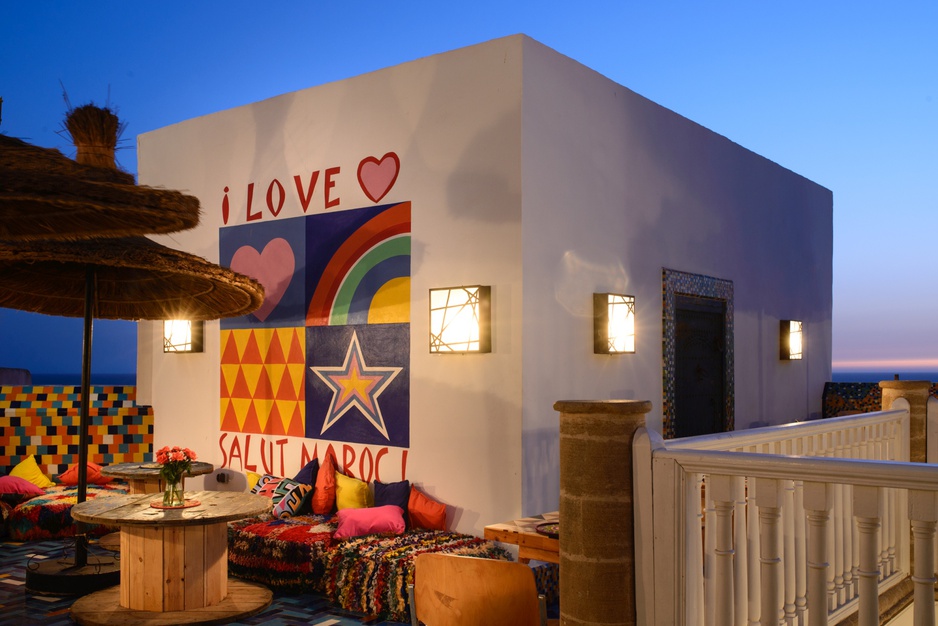
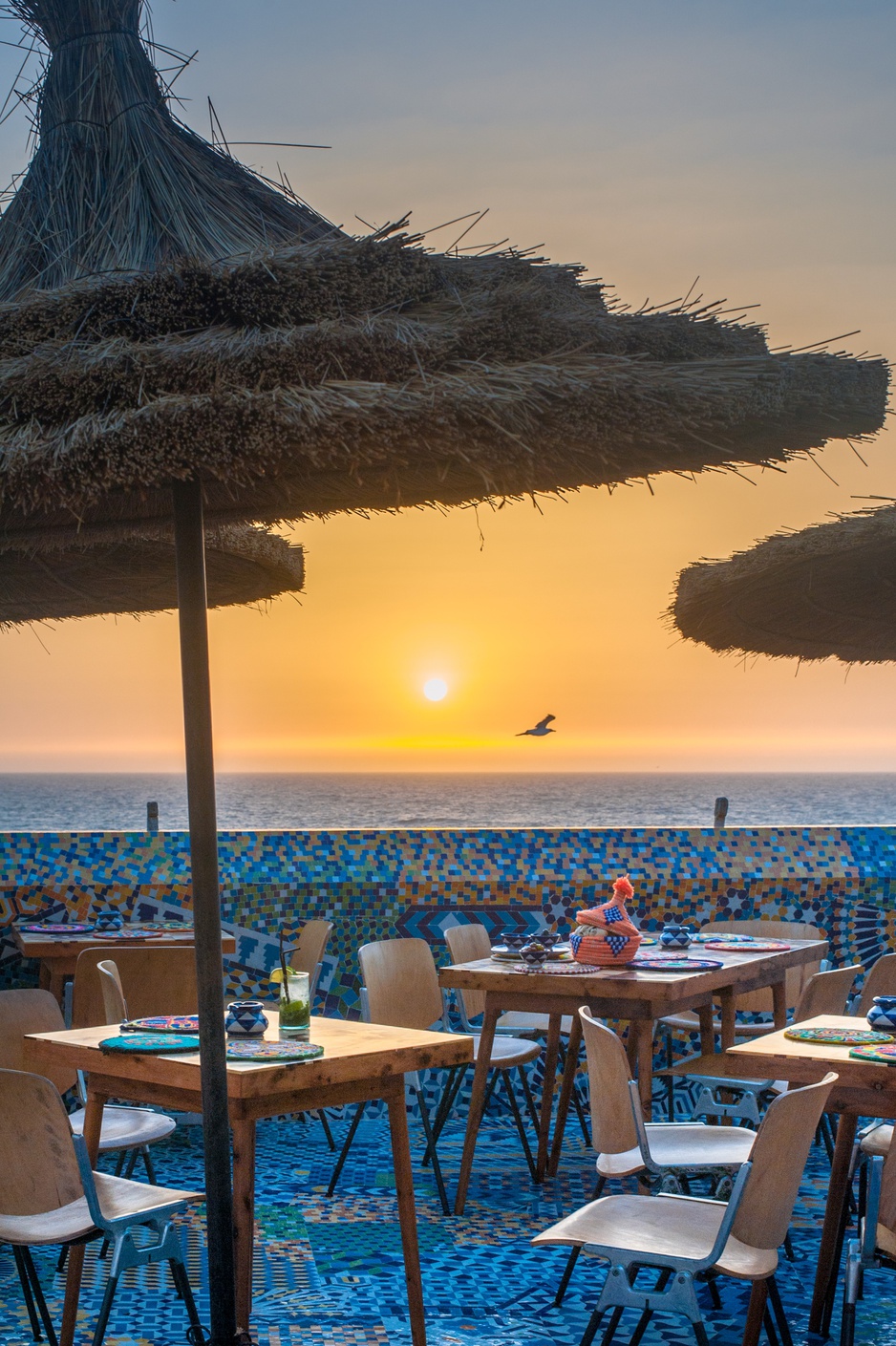
The riad's charming rooftop terrace overlooks the Atlantic Ocean, and it's decorated with colorful mosaics and thatched beach umbrellas. Salut Maroc's restaurant serves food here all day long. From freshly caught fish and seafood, healthy salads to traditional Moroccan specialties. And, of course, a selection of wines and tasty cocktails to complete the sunset experience.
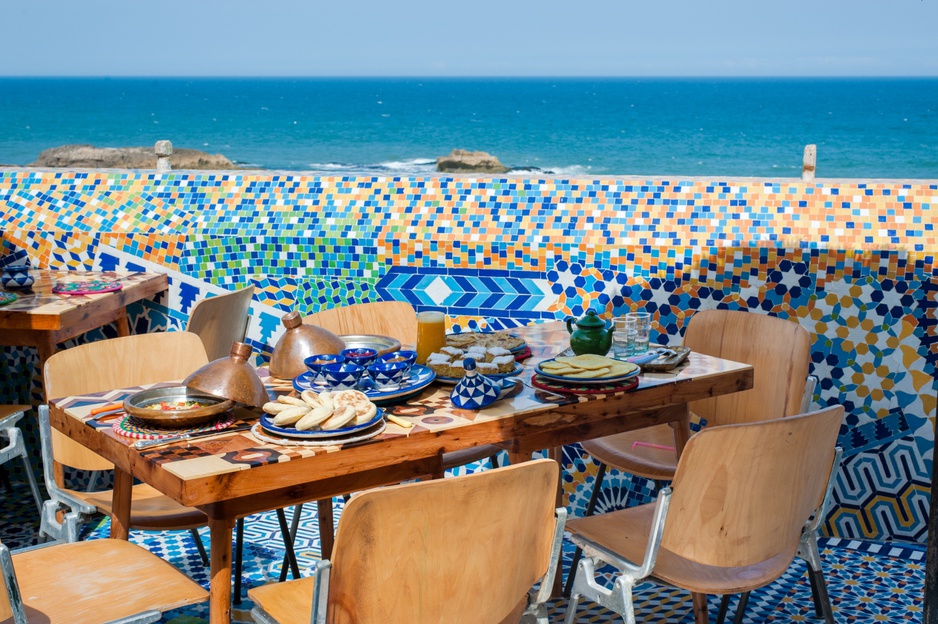
A mouthwateringly delicious breakfast is served every morning here free of charge for the hotel's guests.
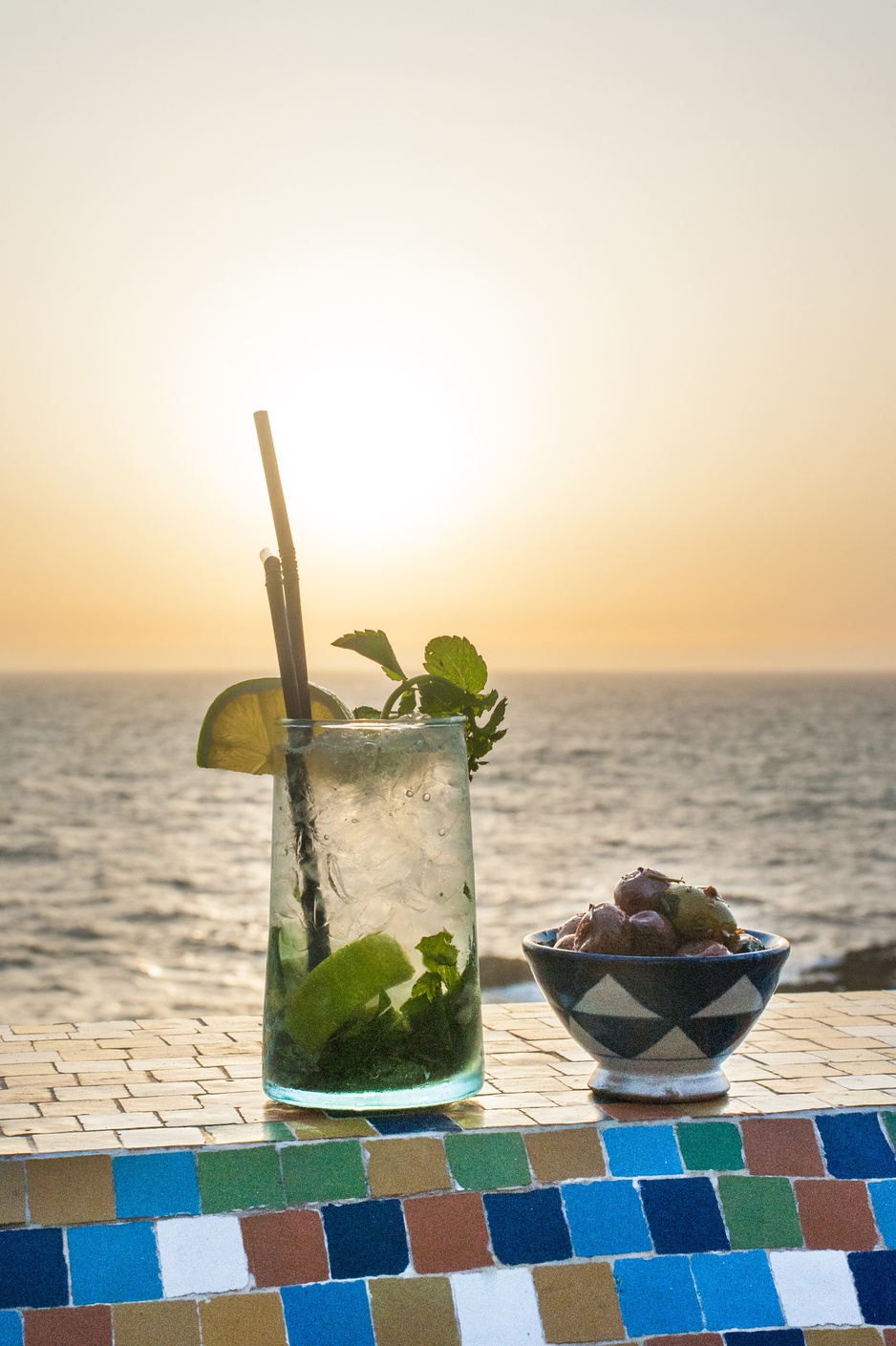
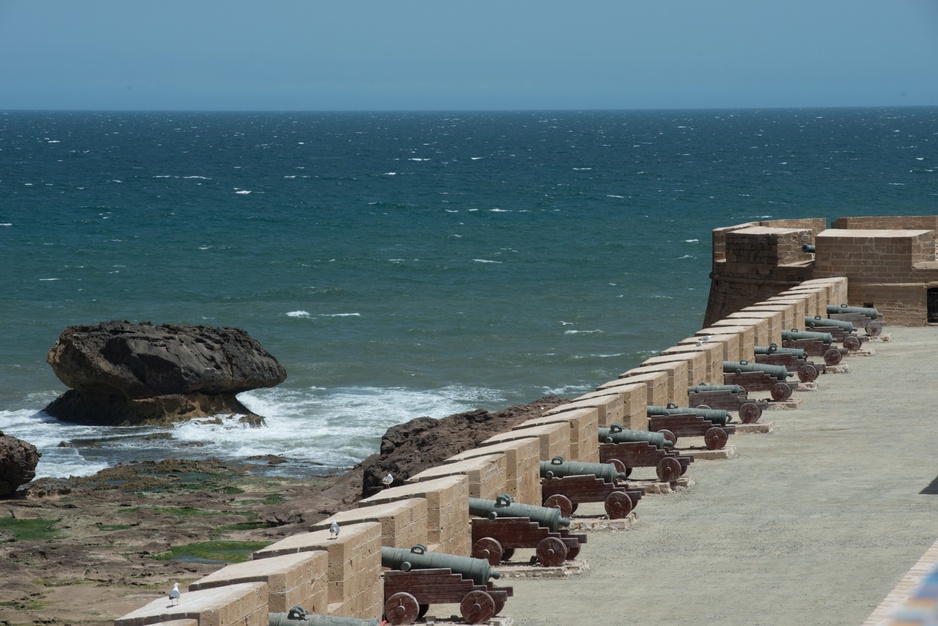
Essaouira's 18th-century fortification is called the "Scala del Mar".
32 Rue Ibn Rochd, Essaouira 44000, Morocco








